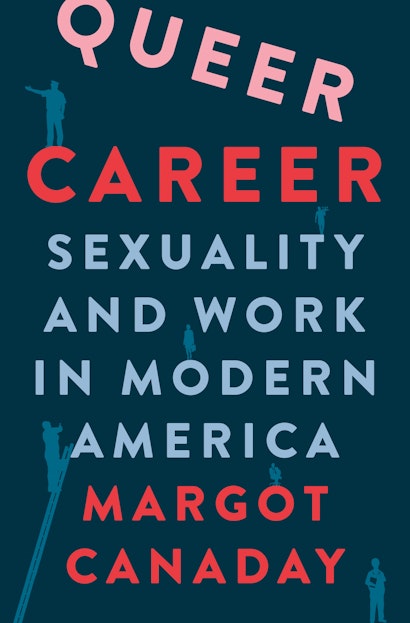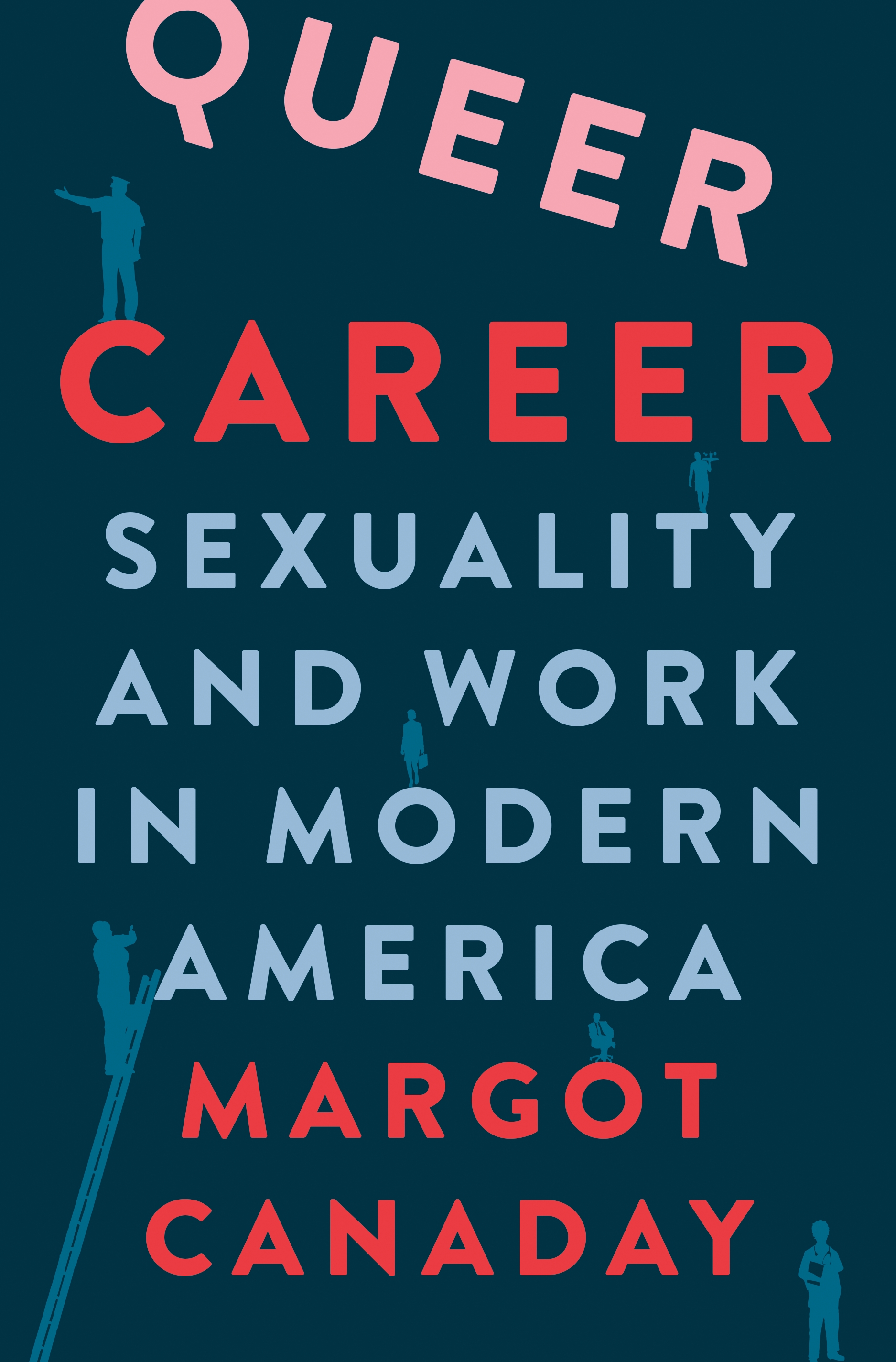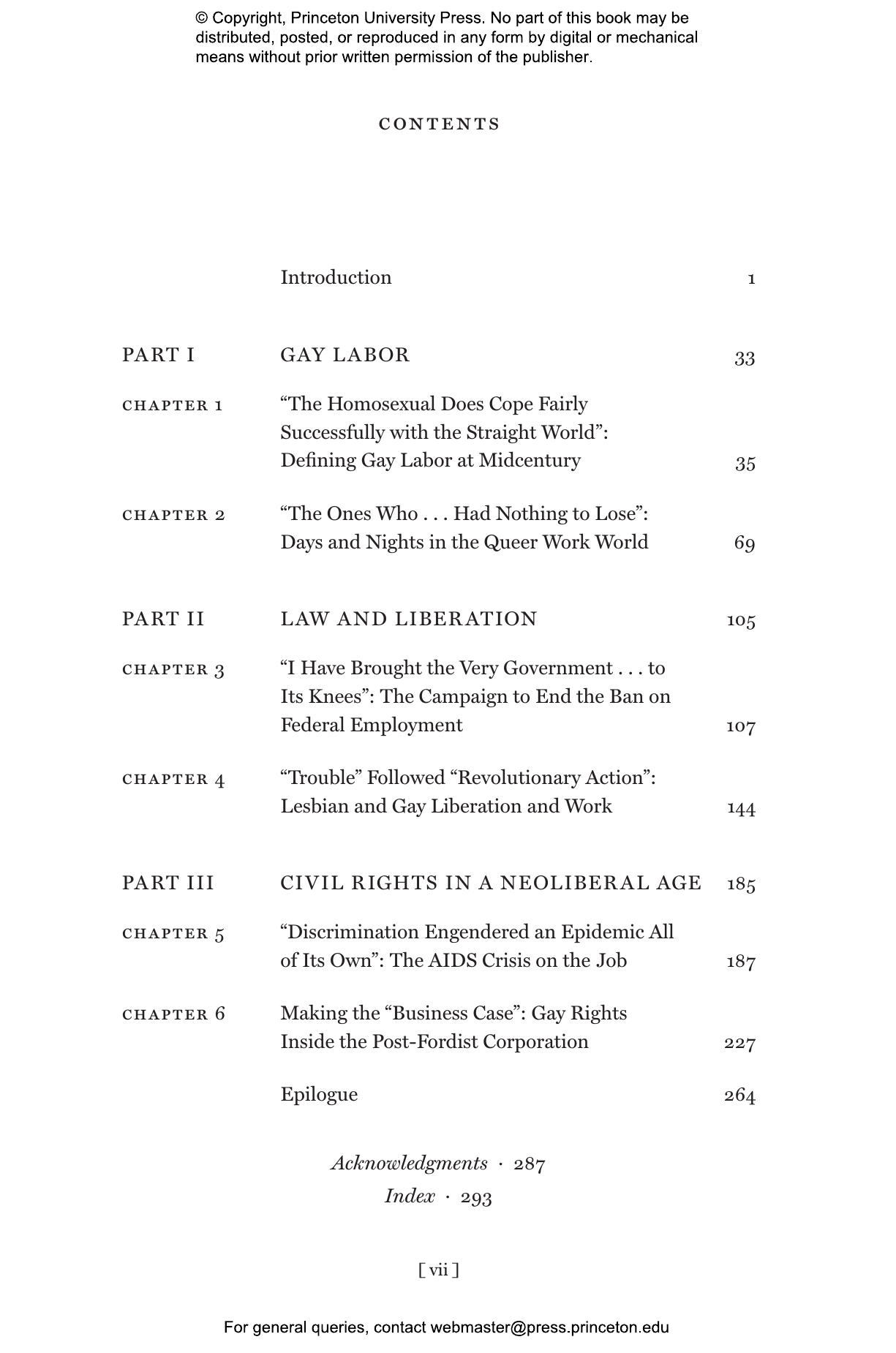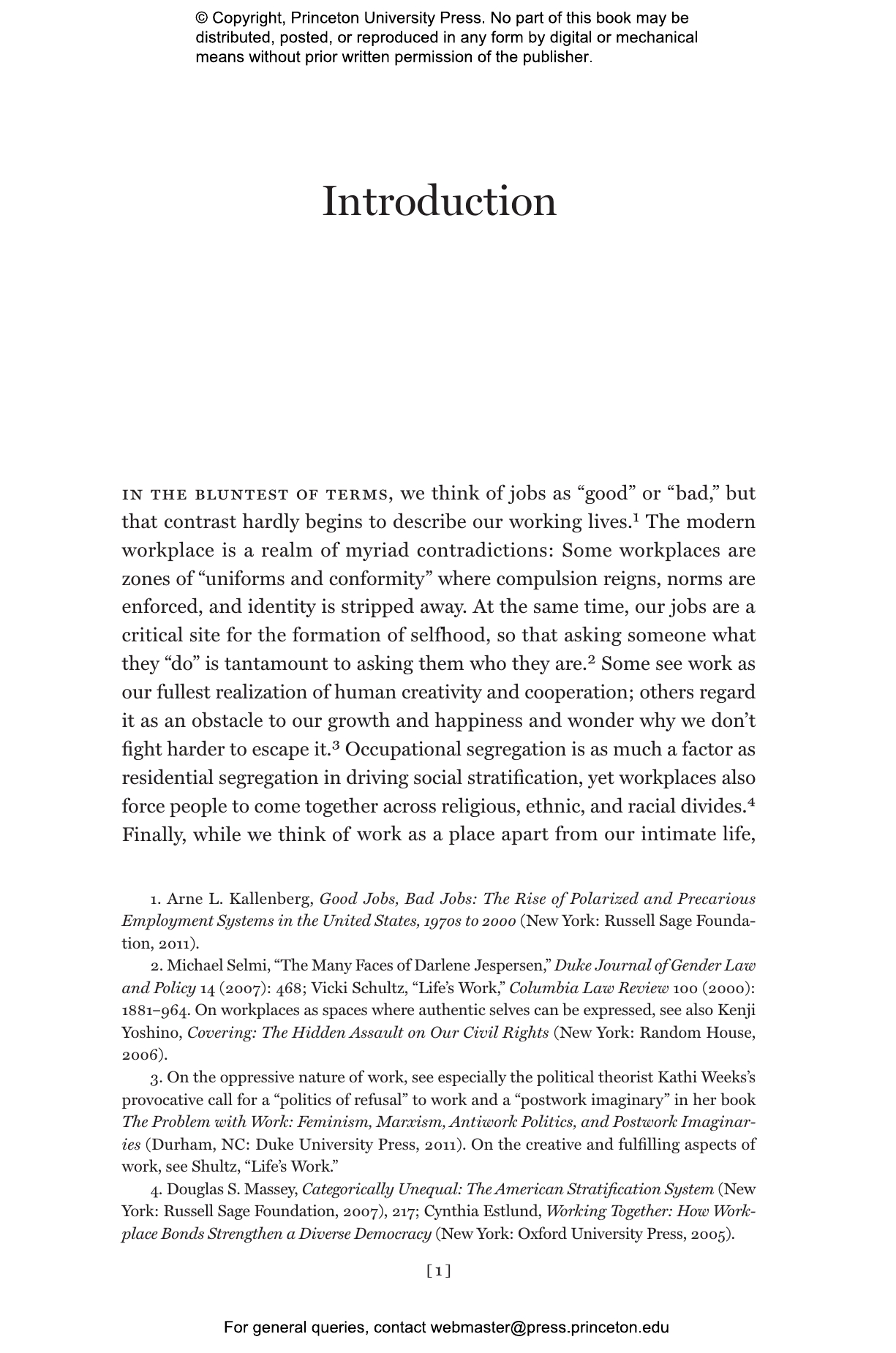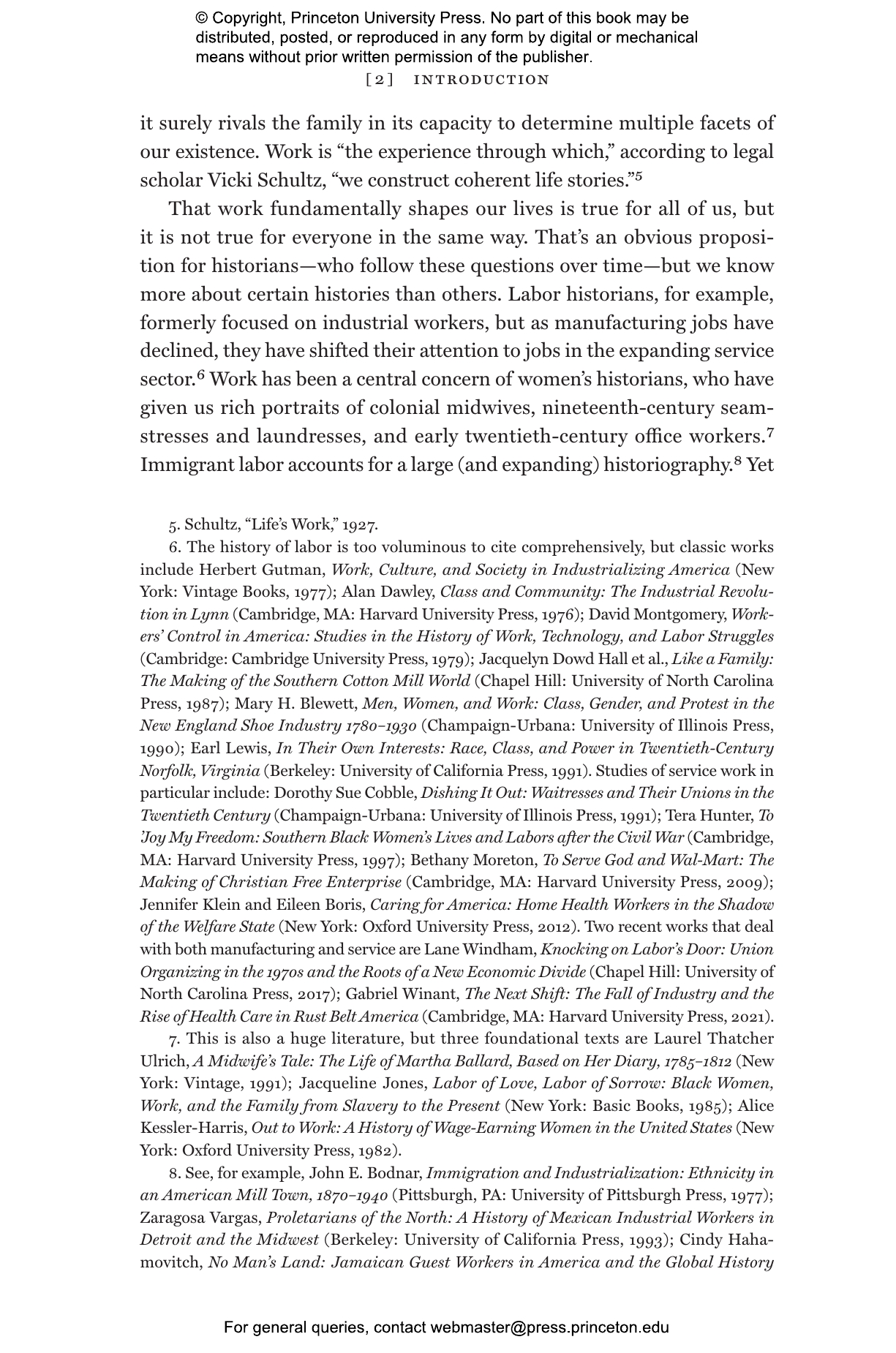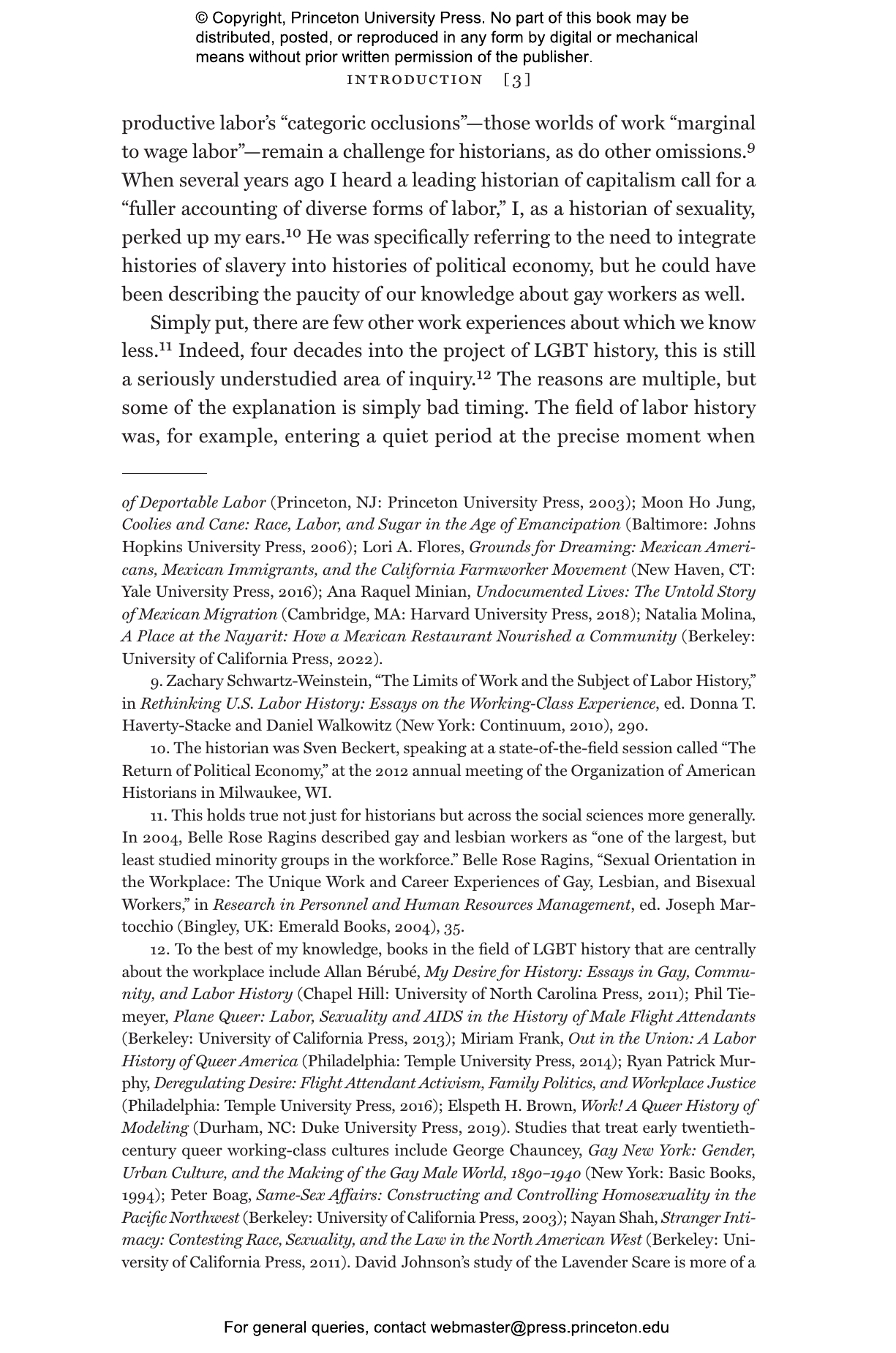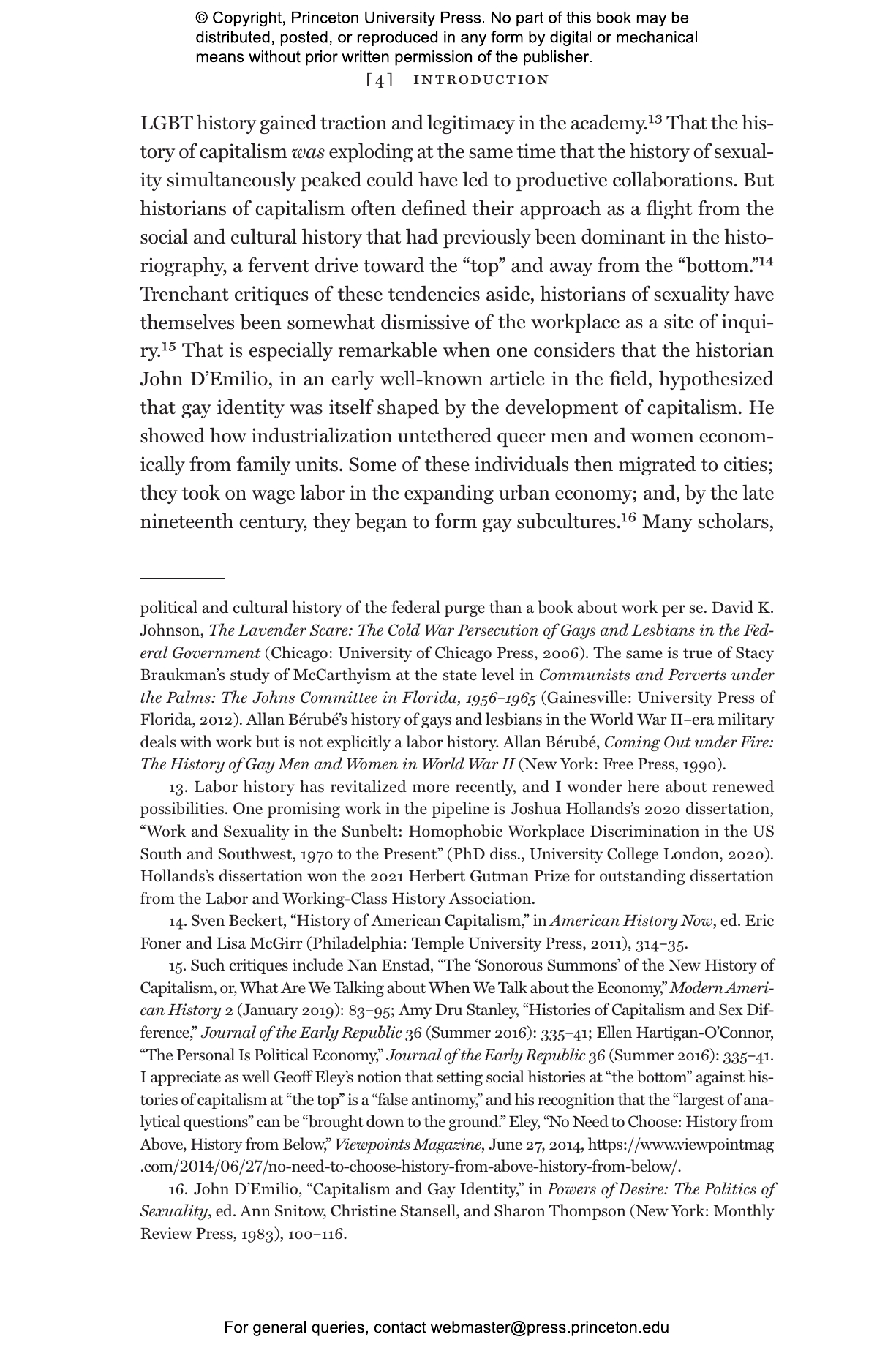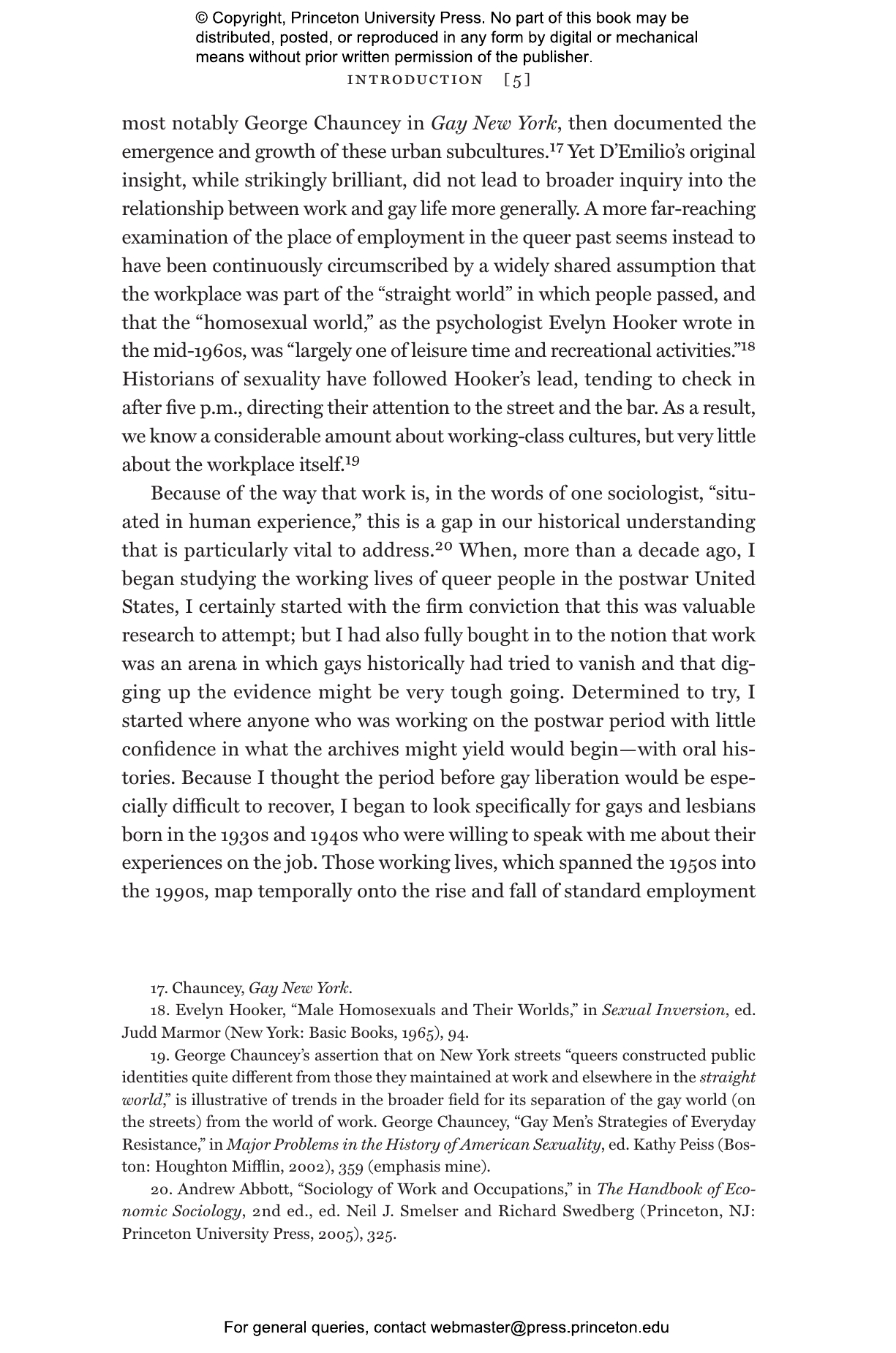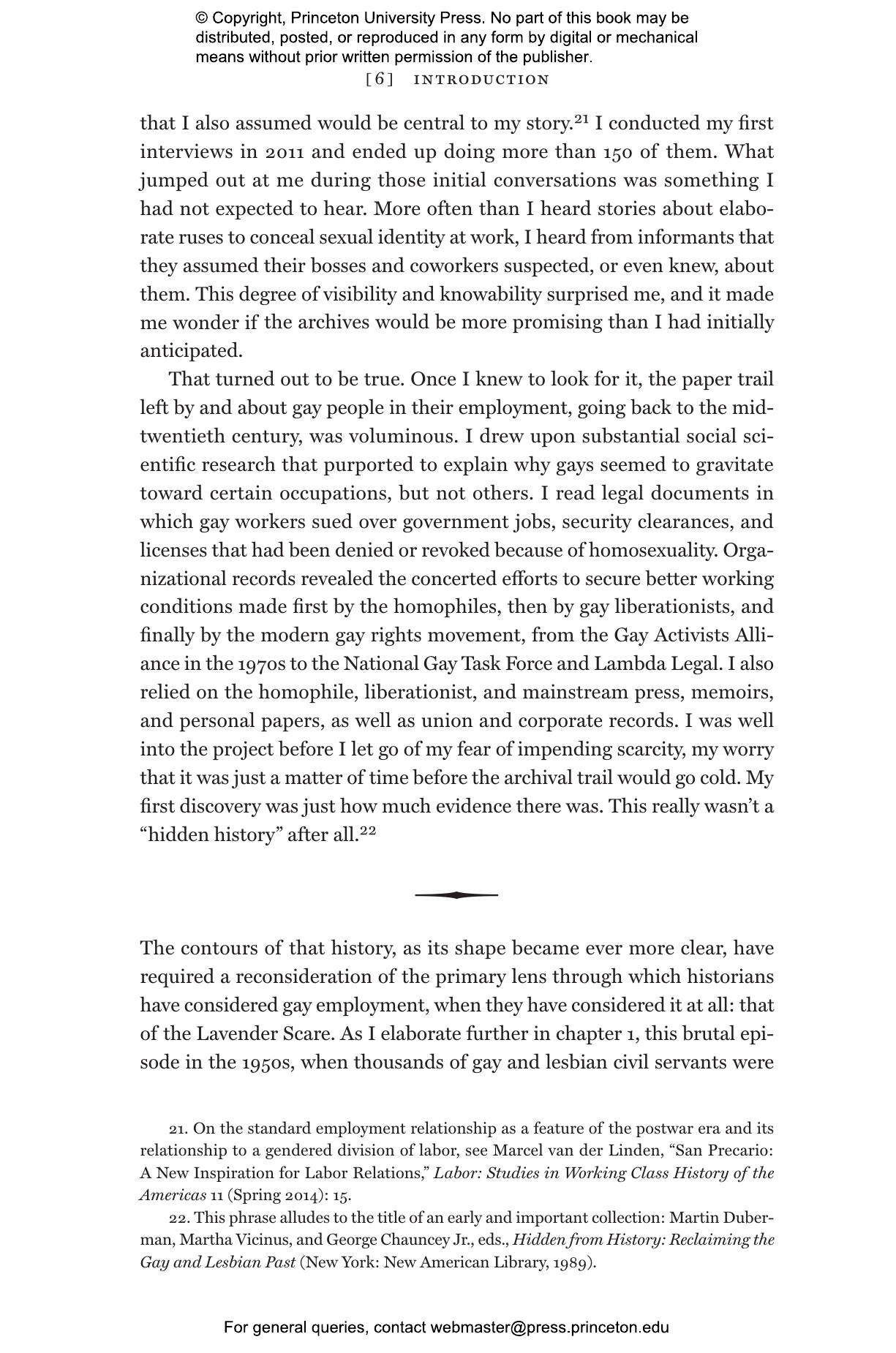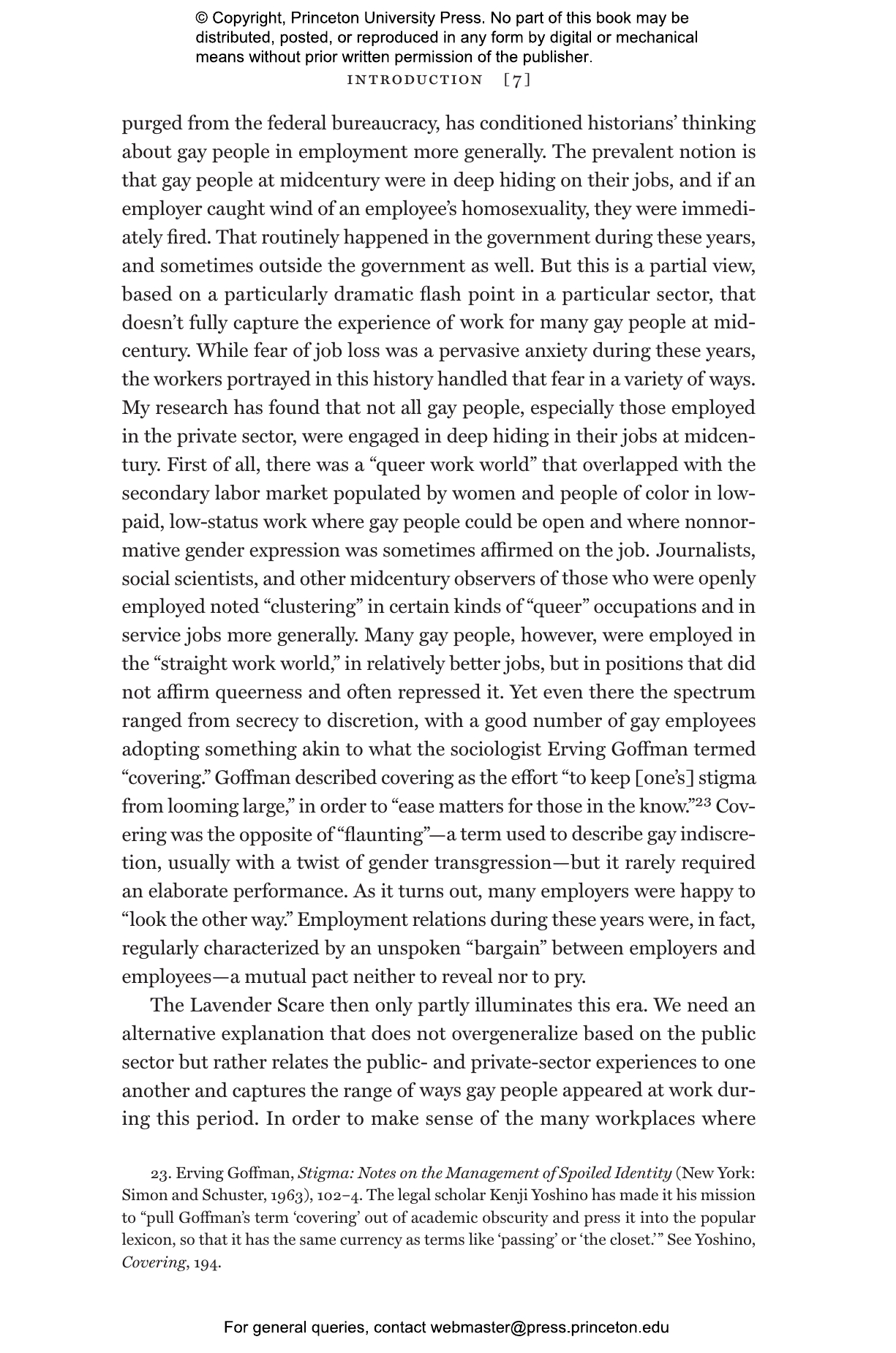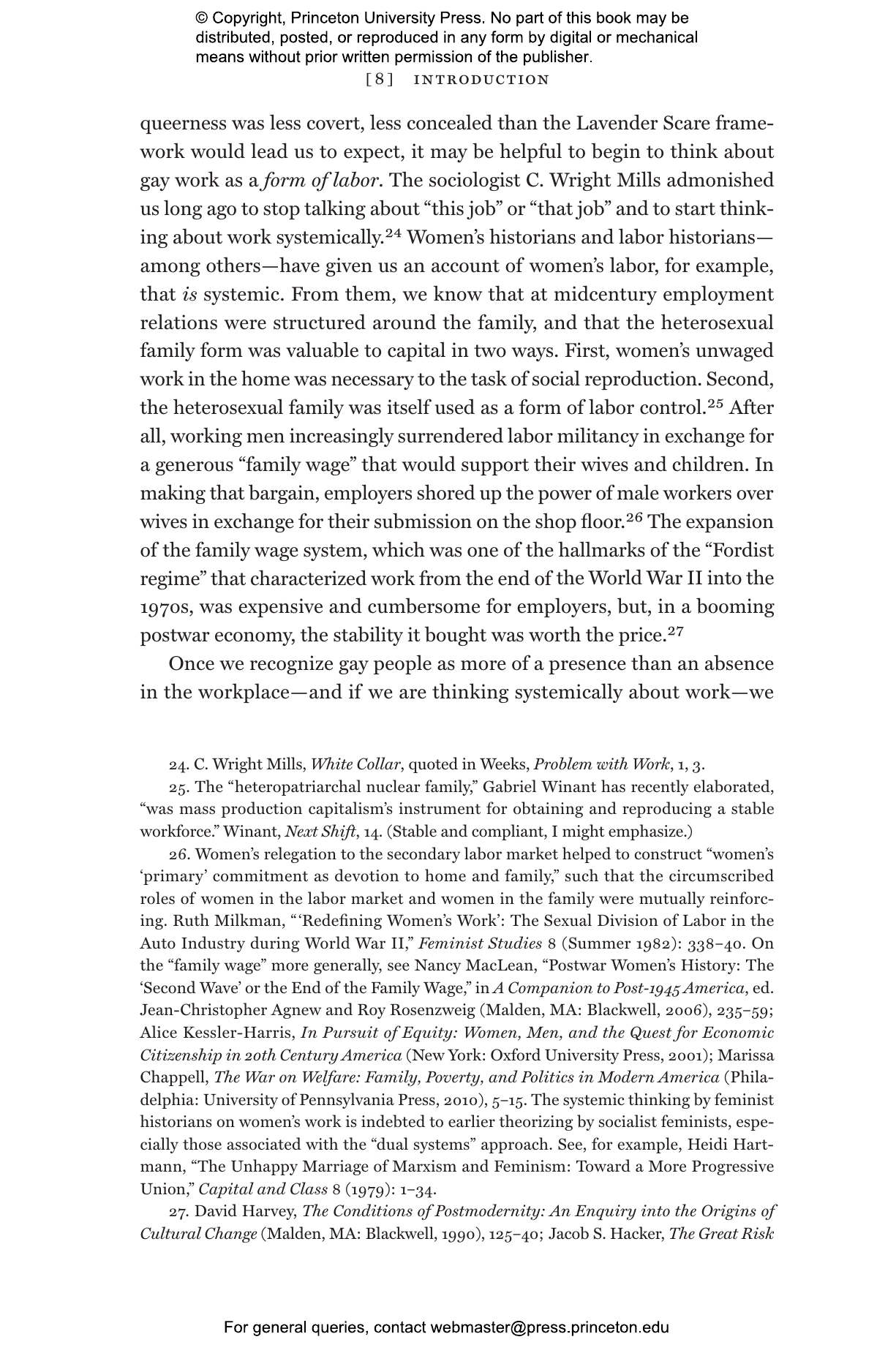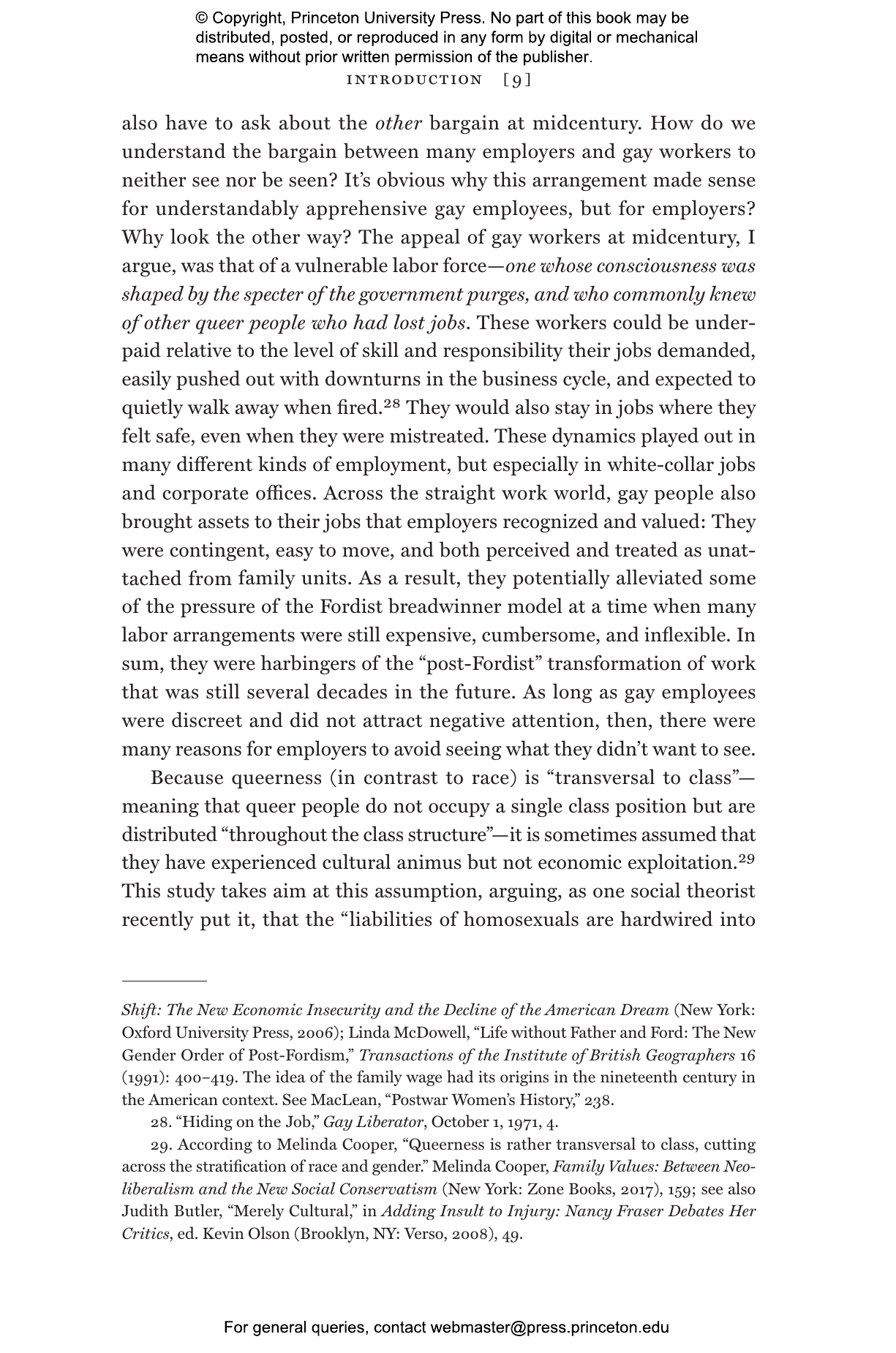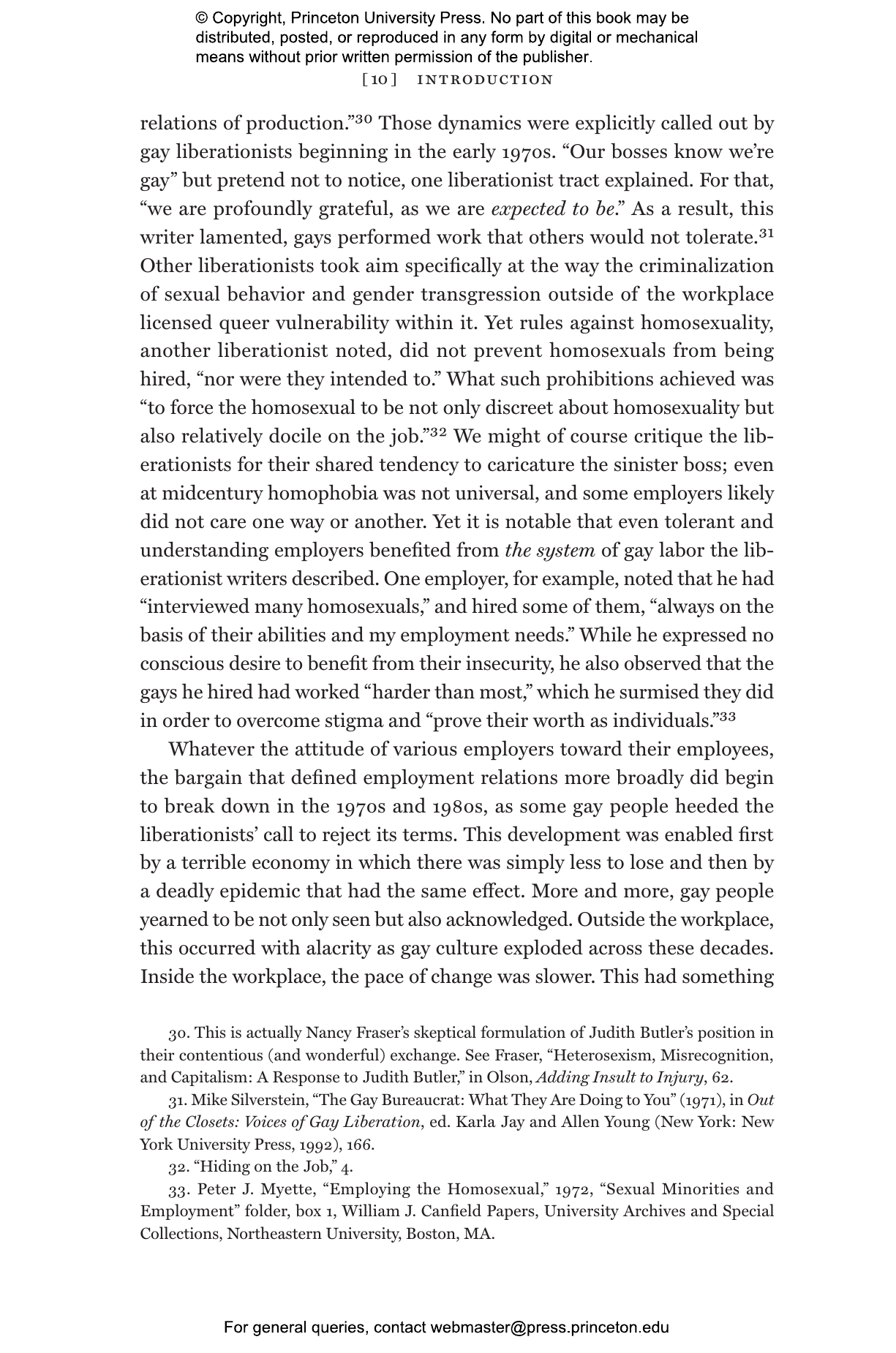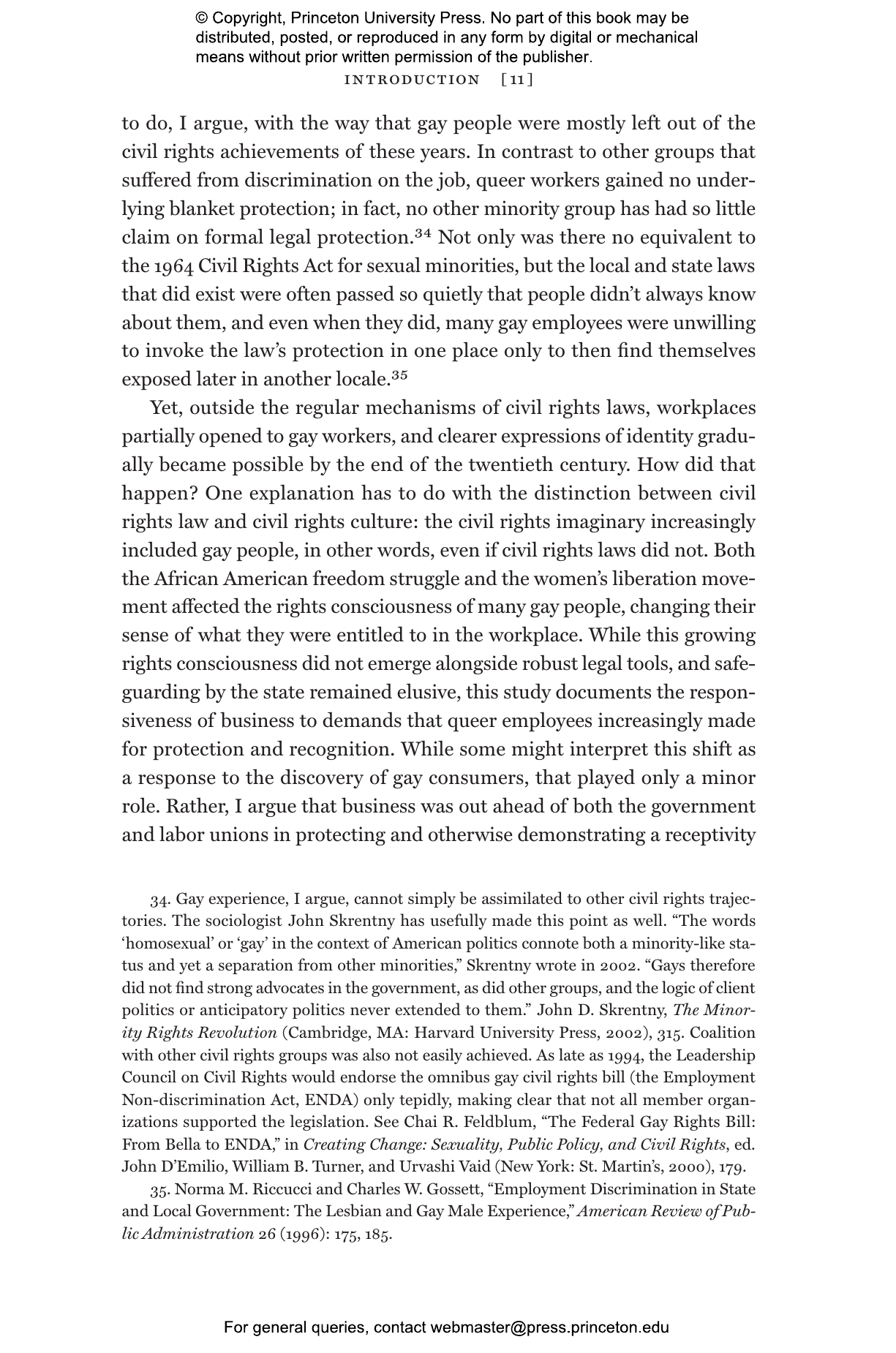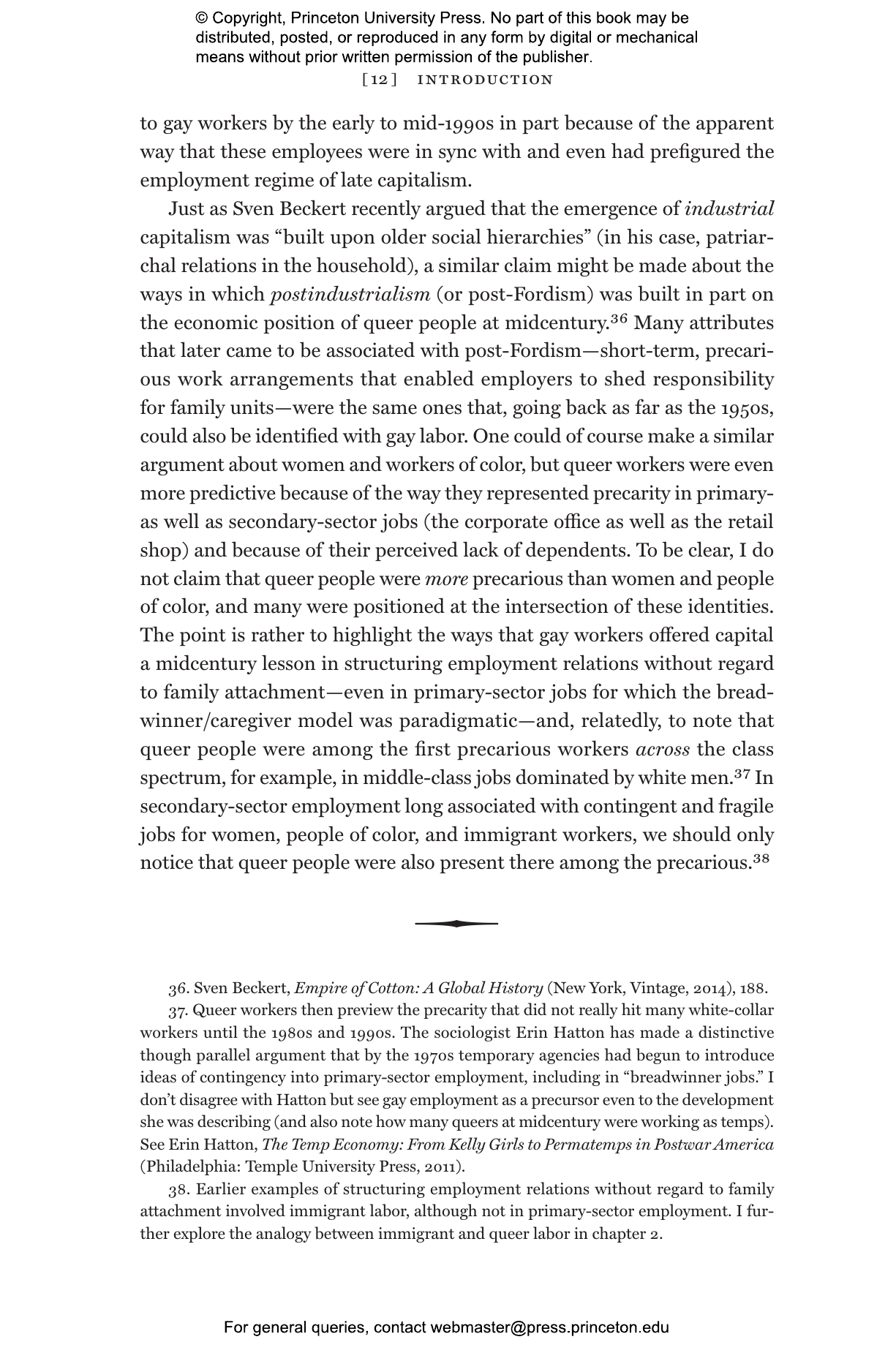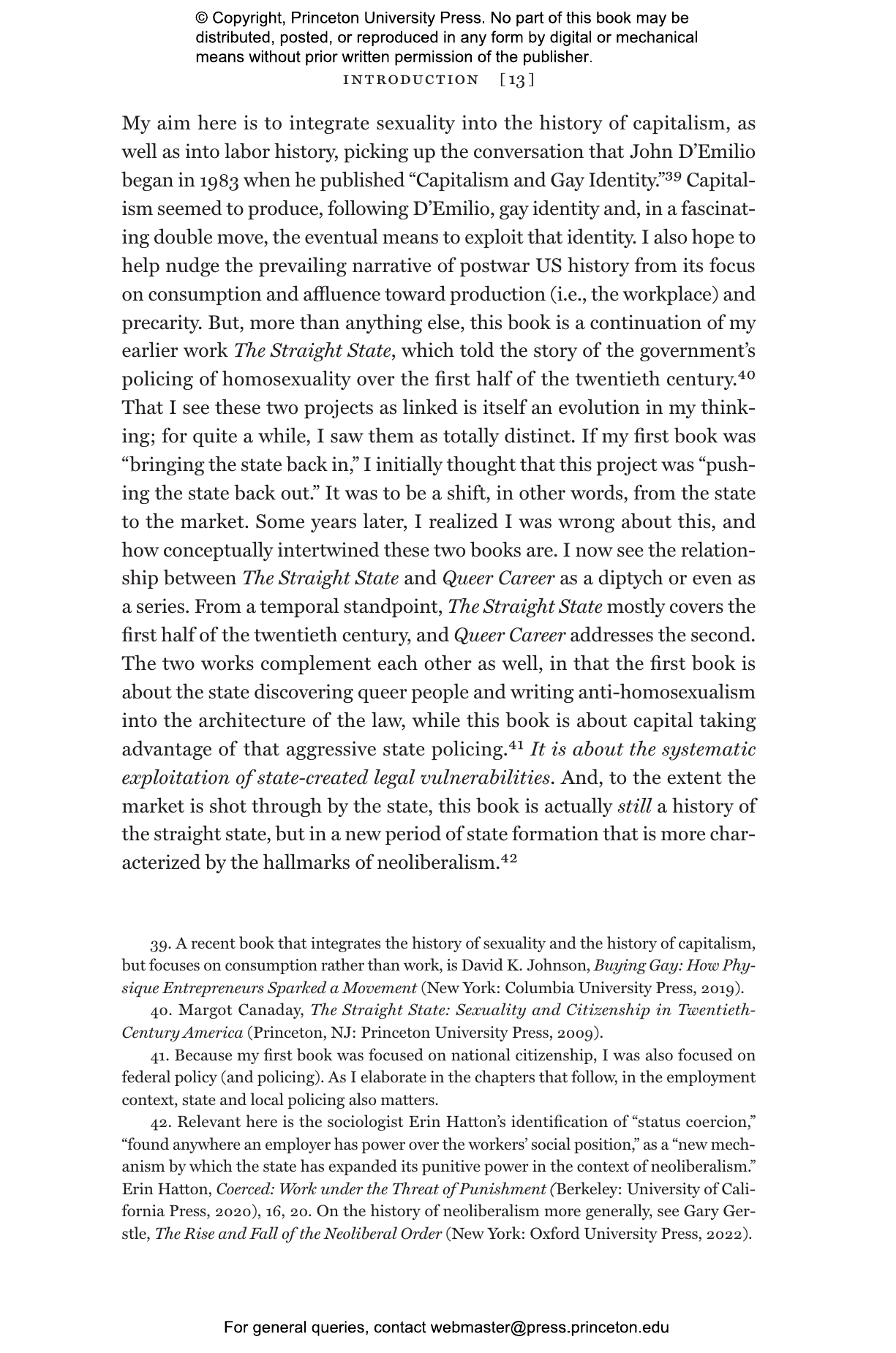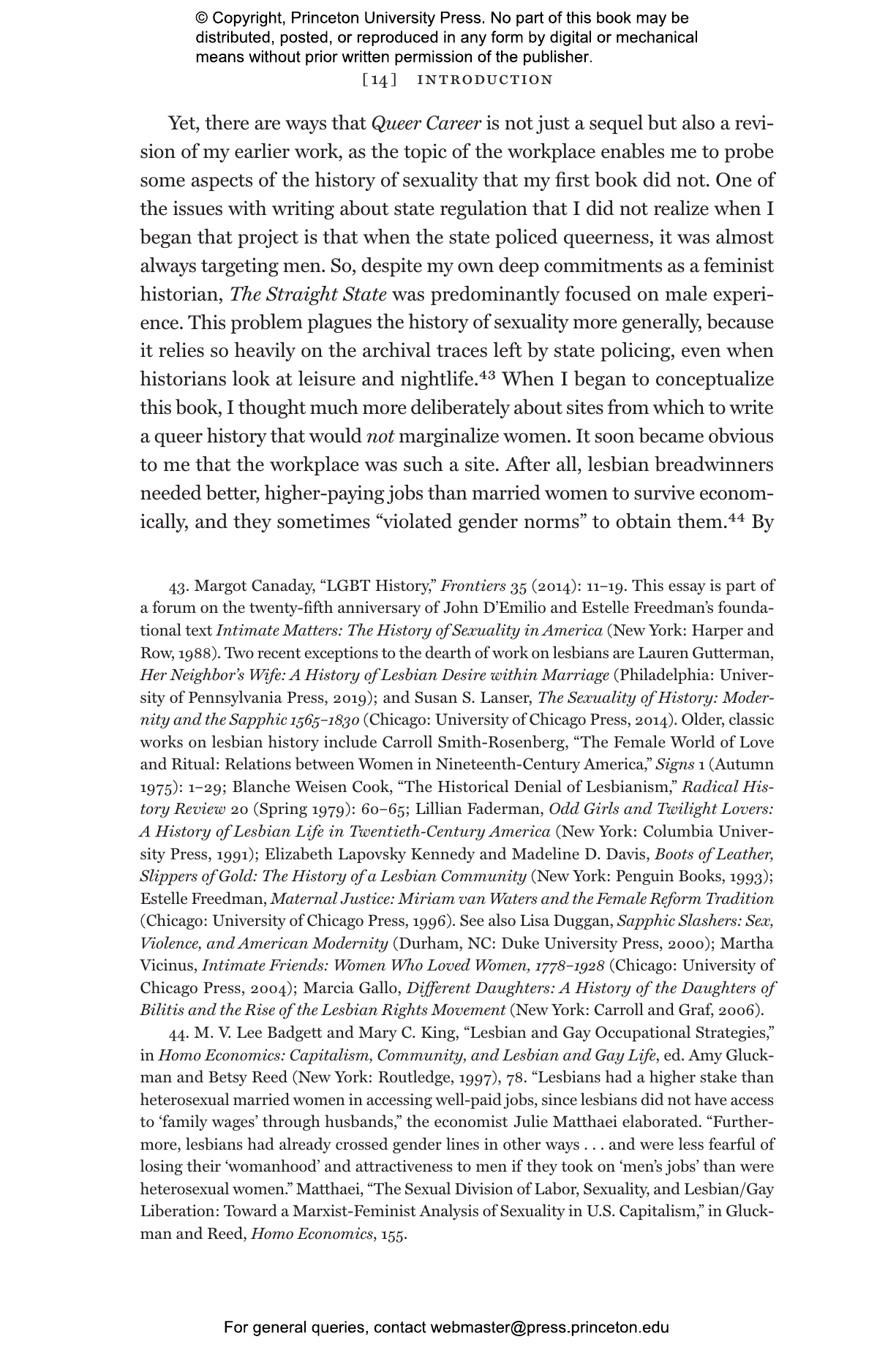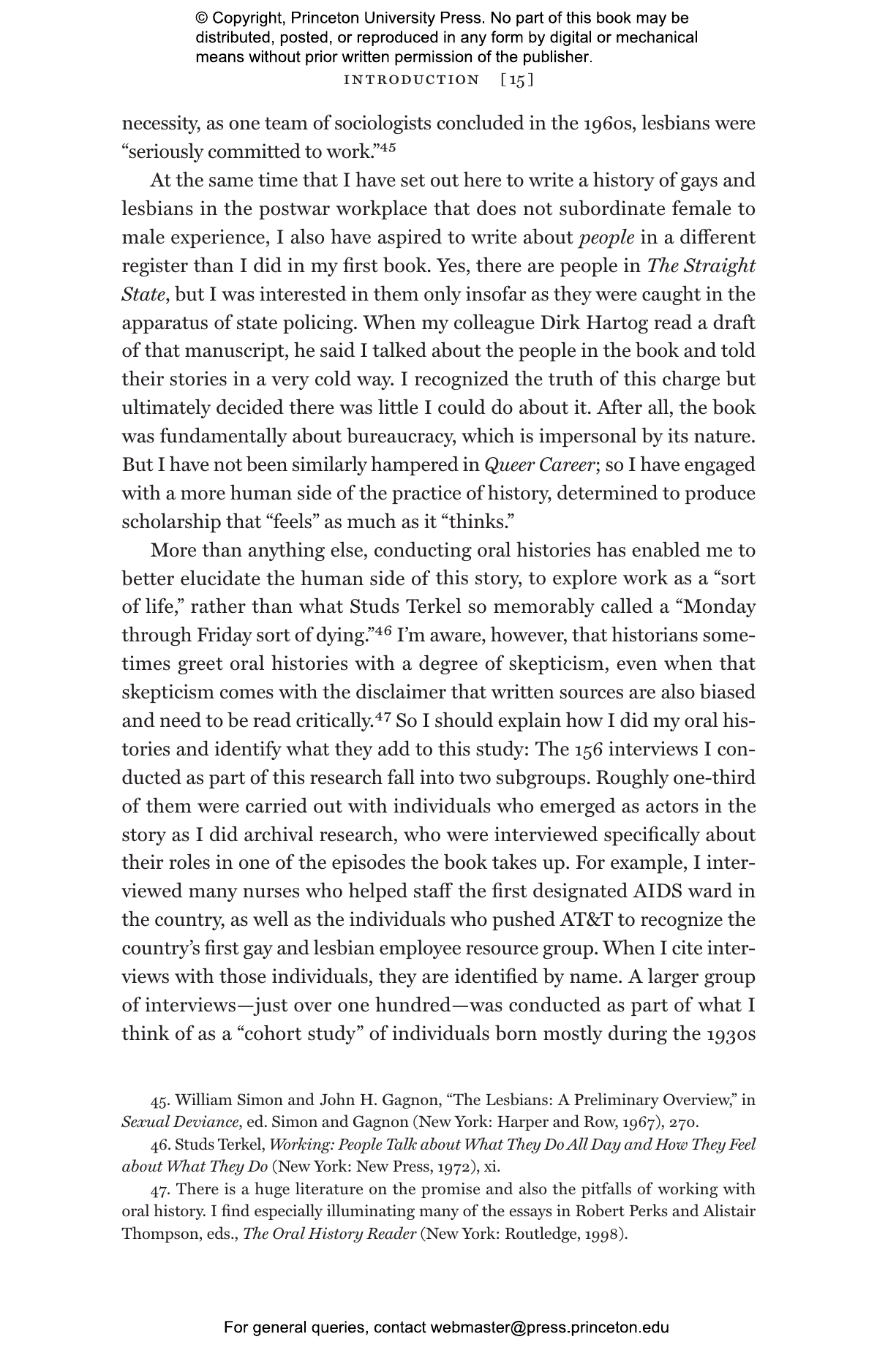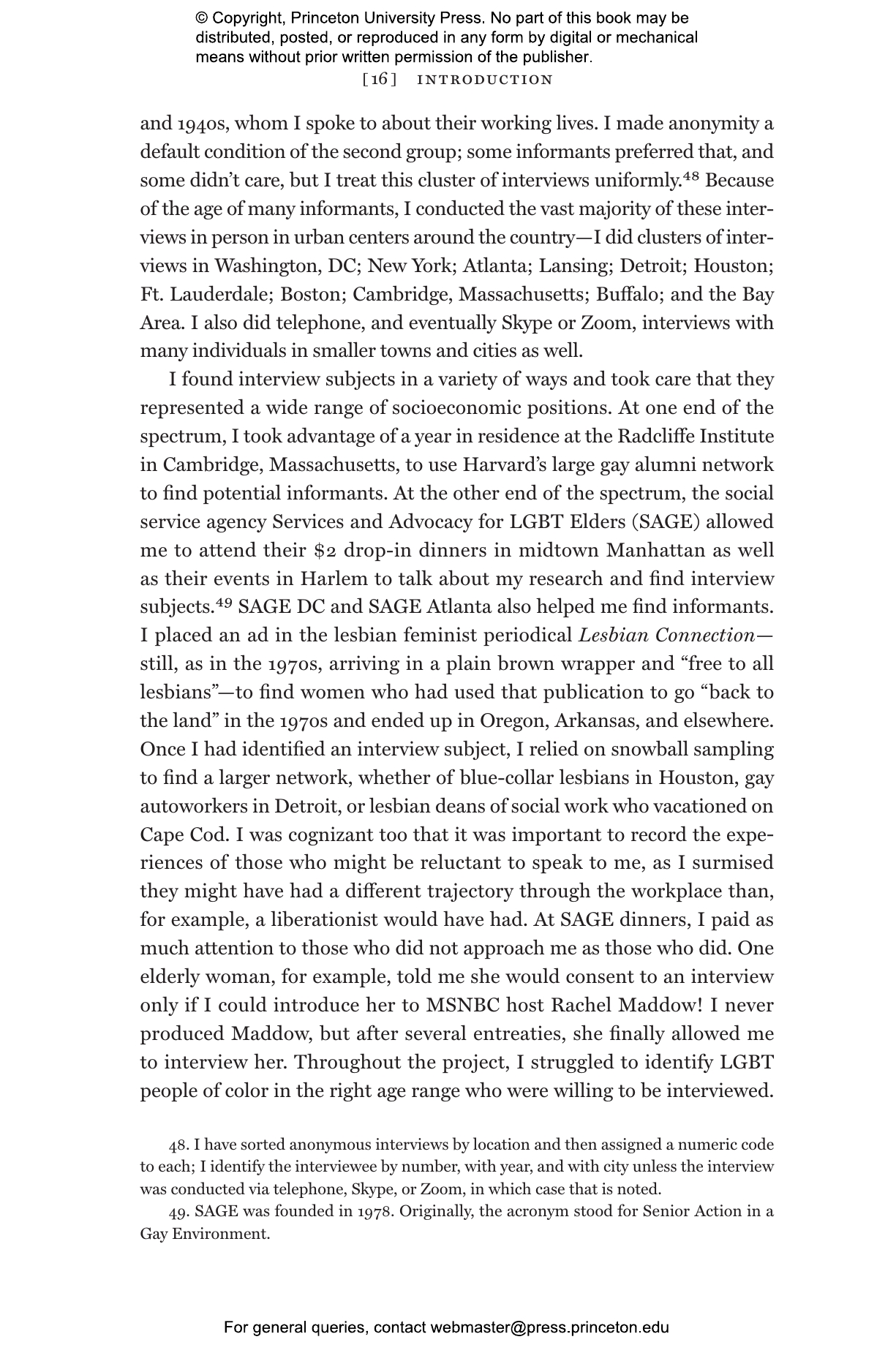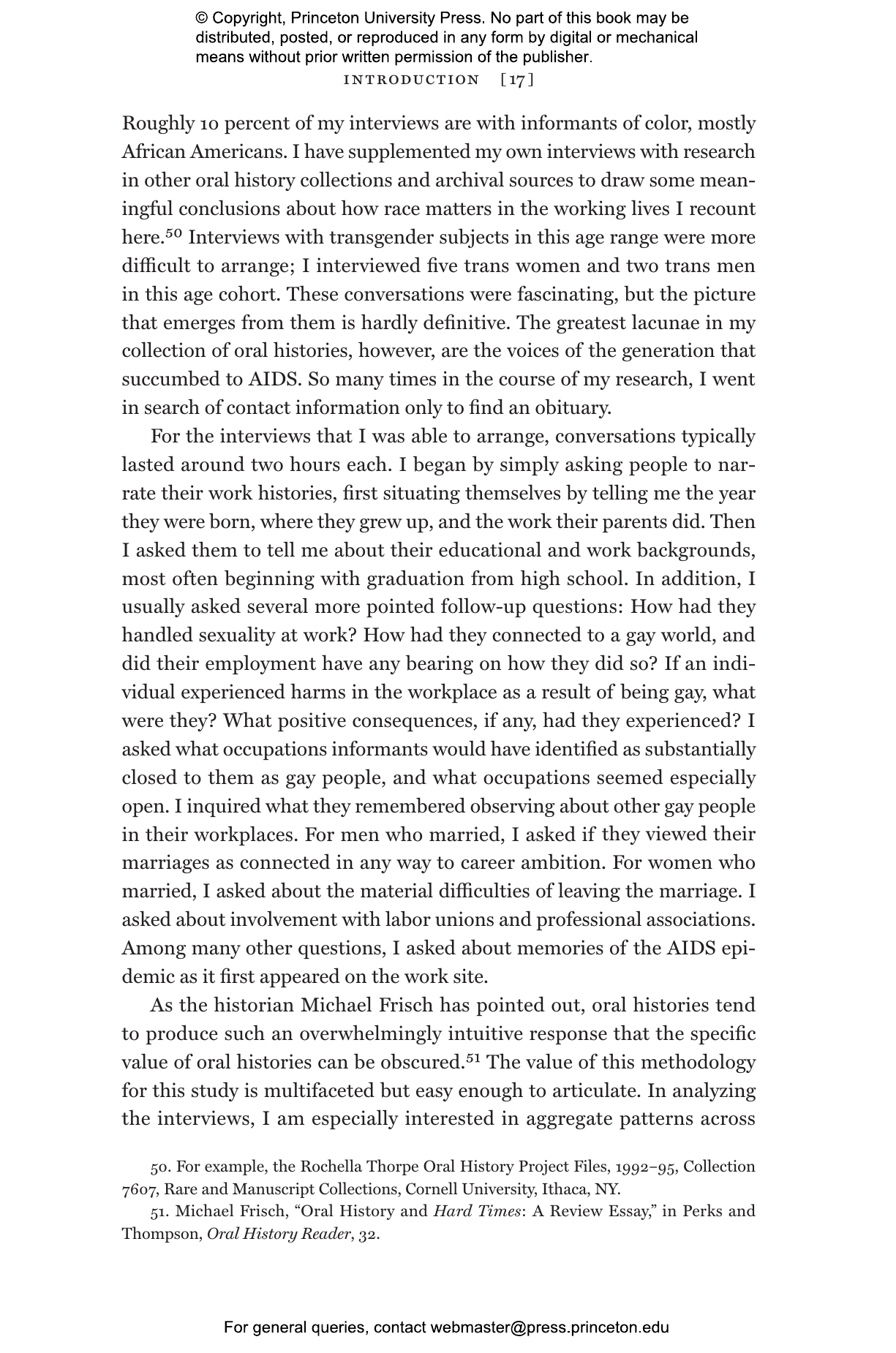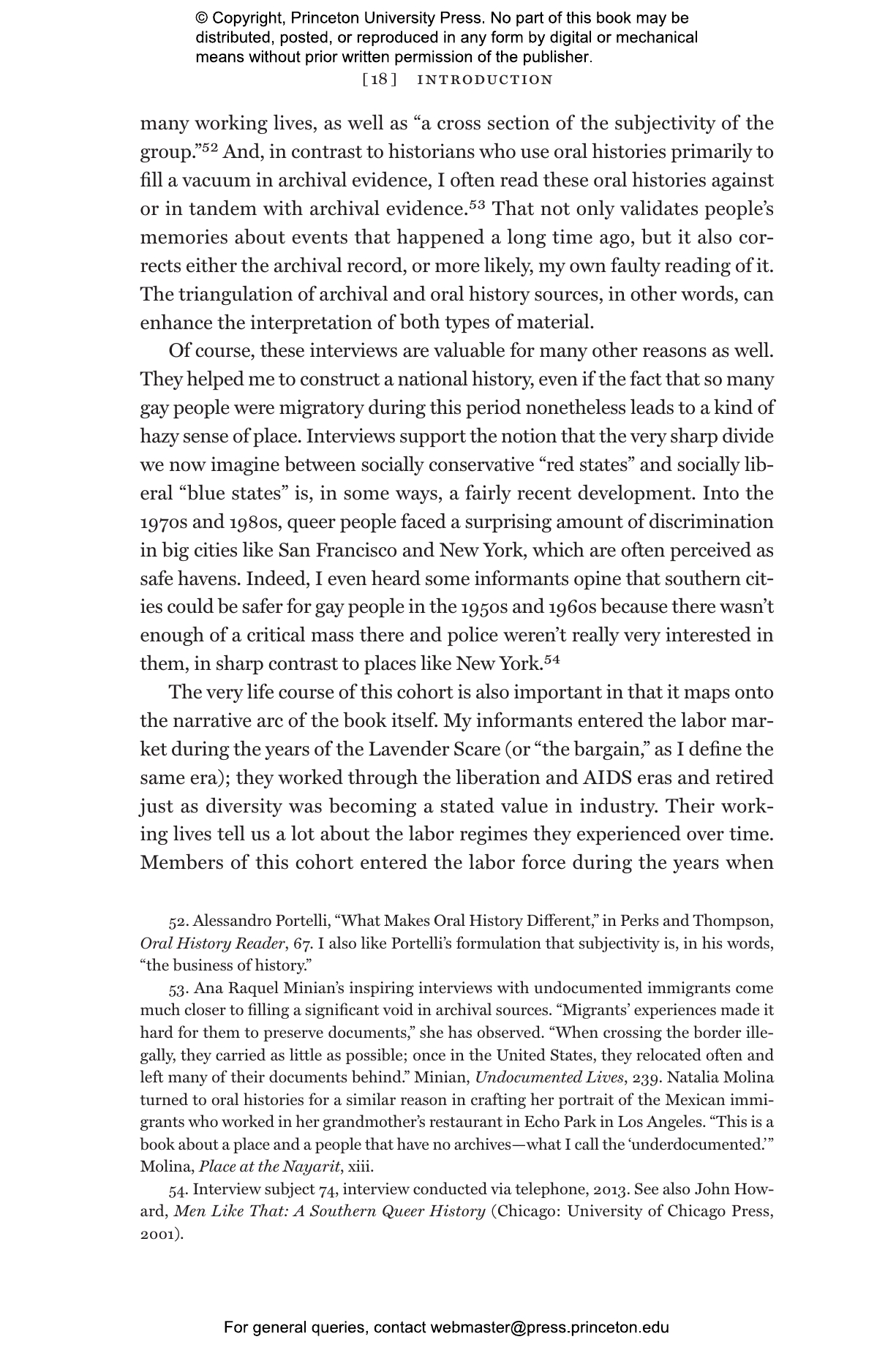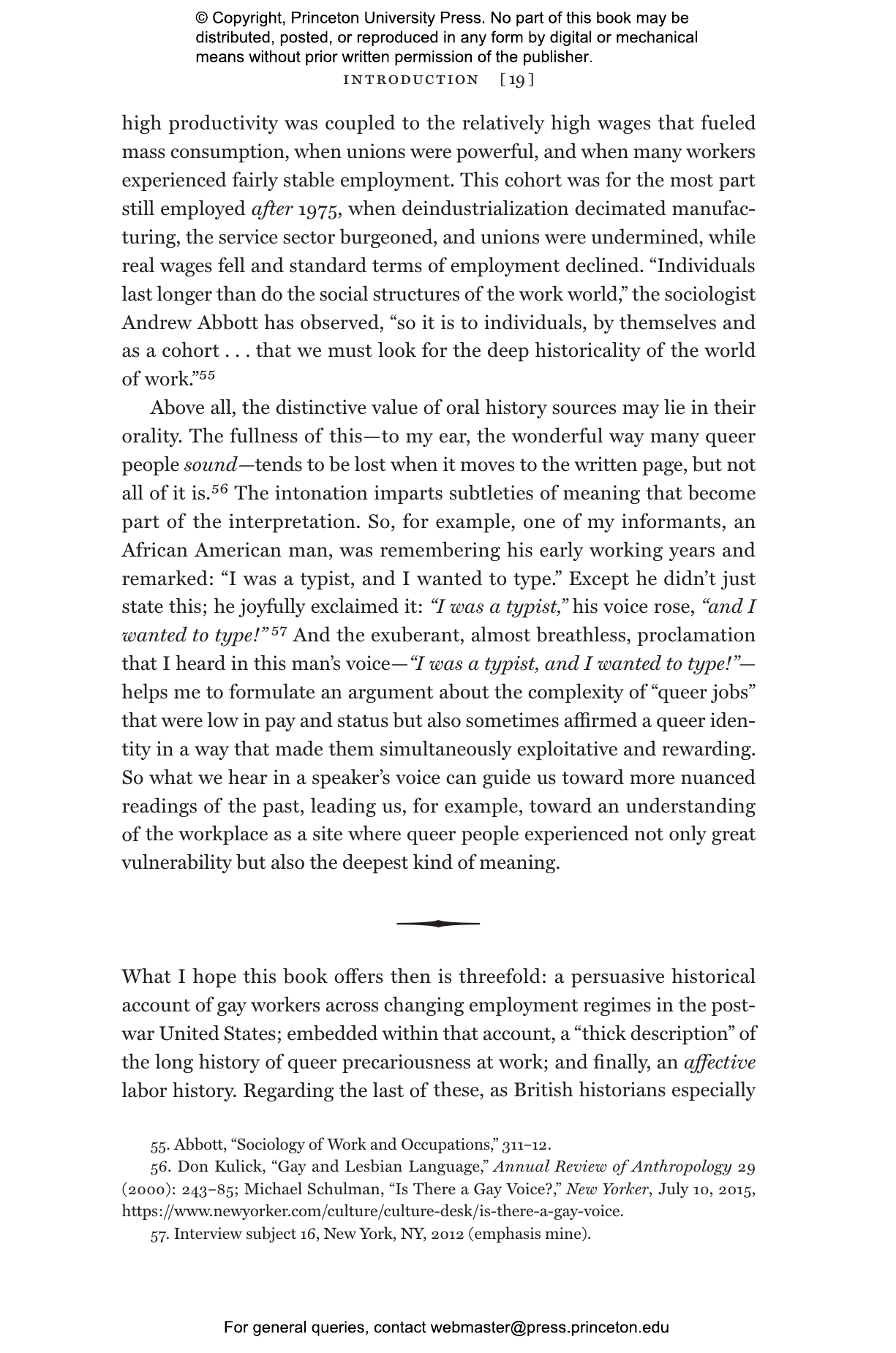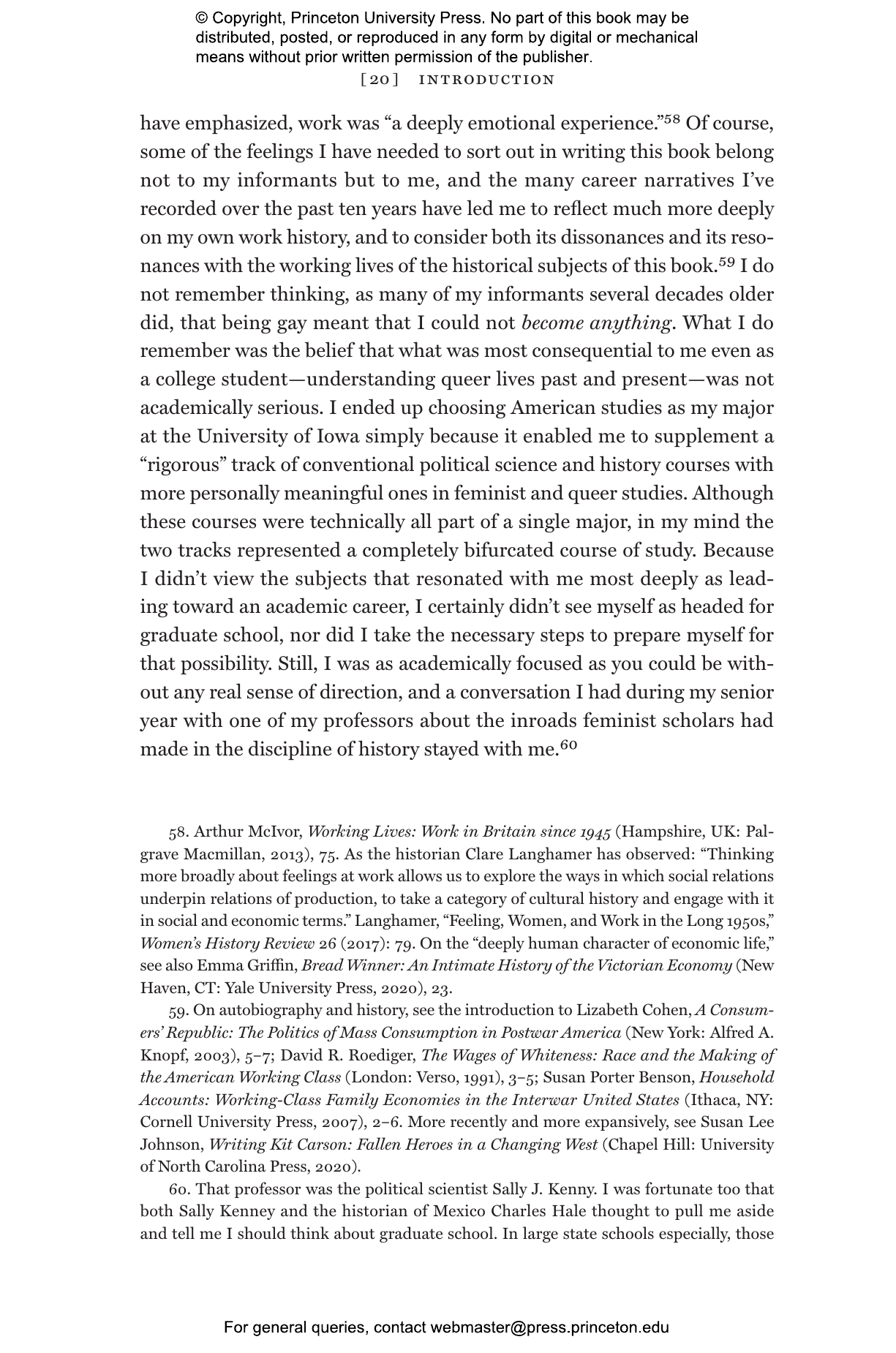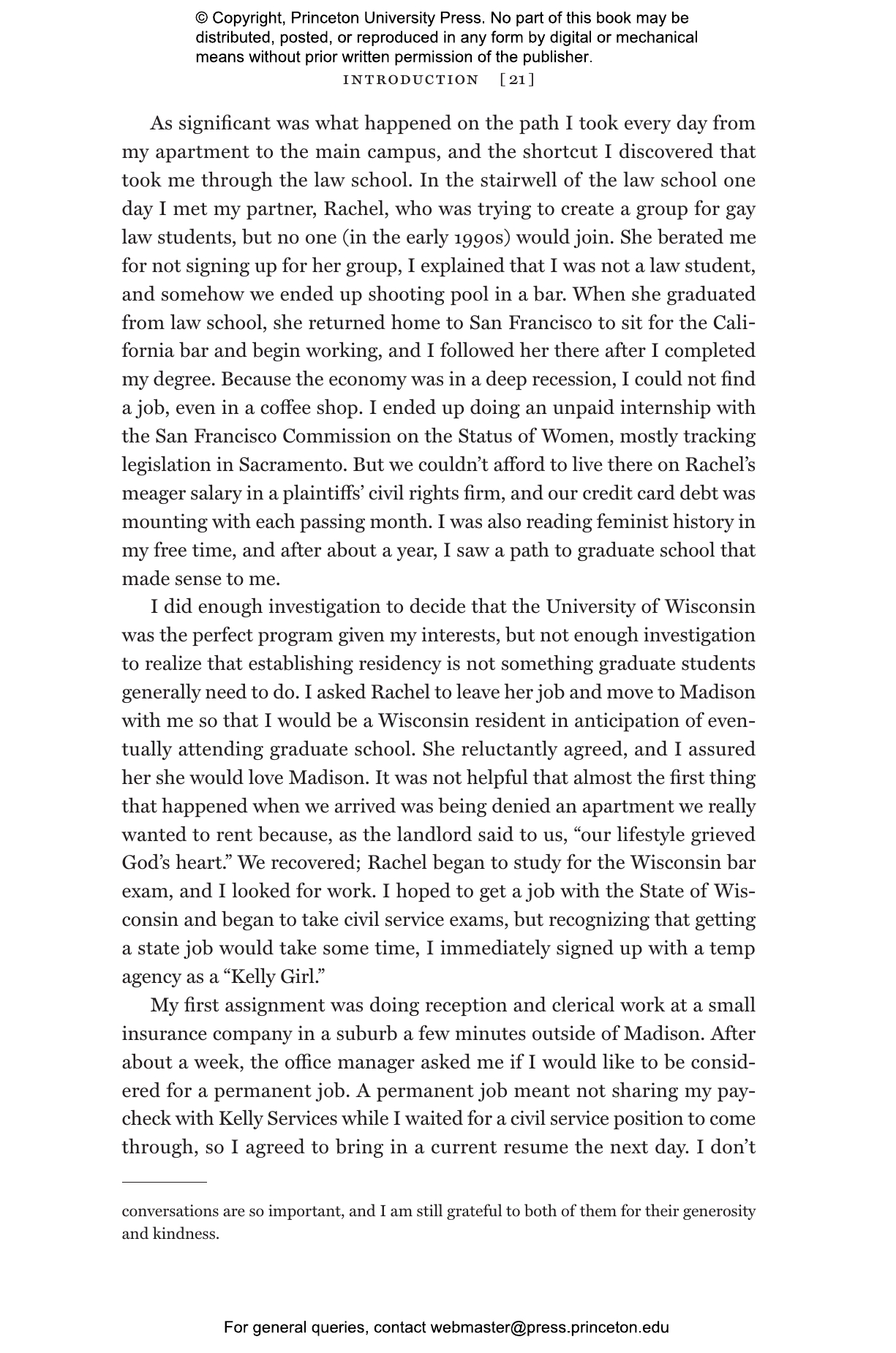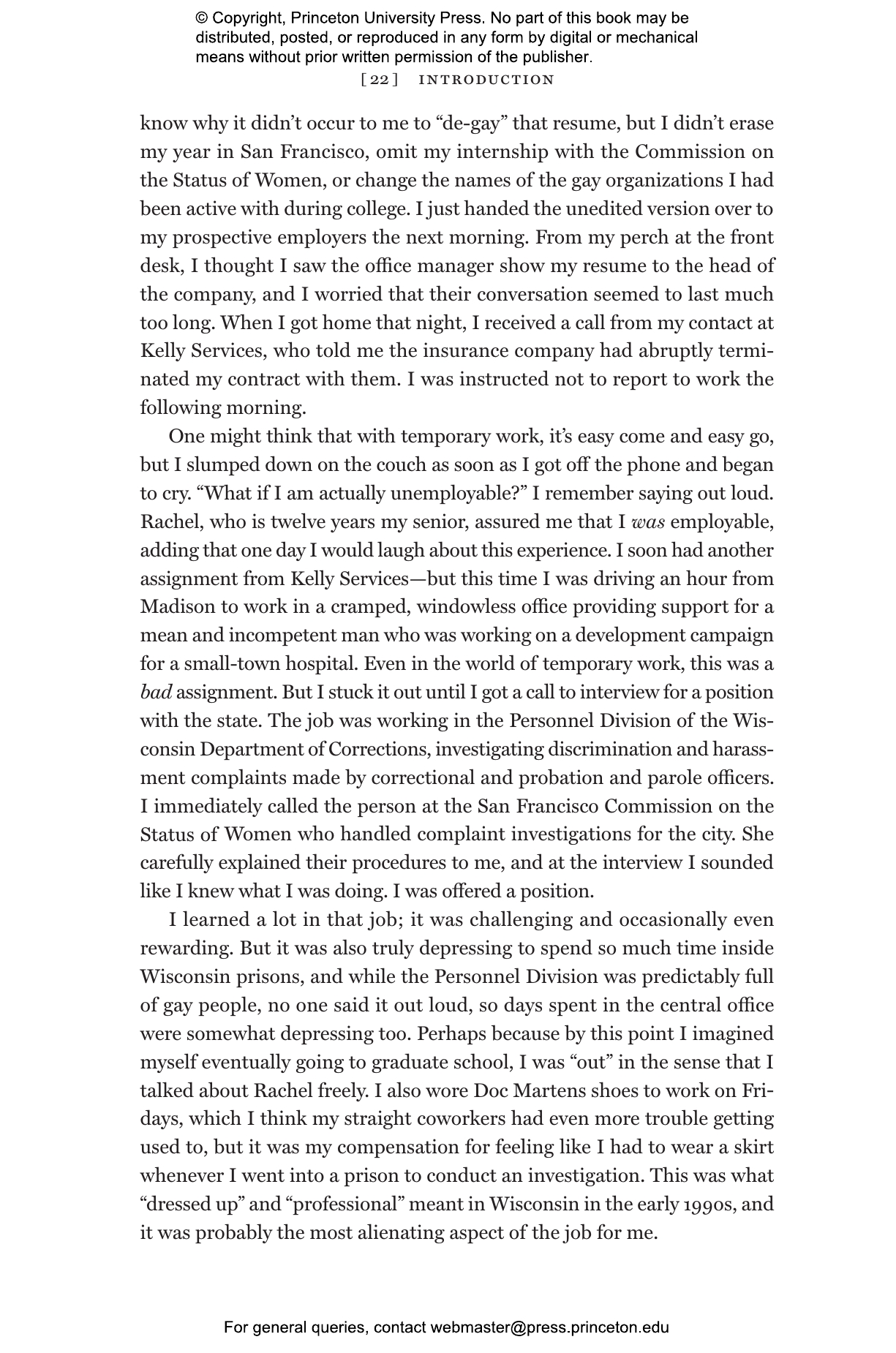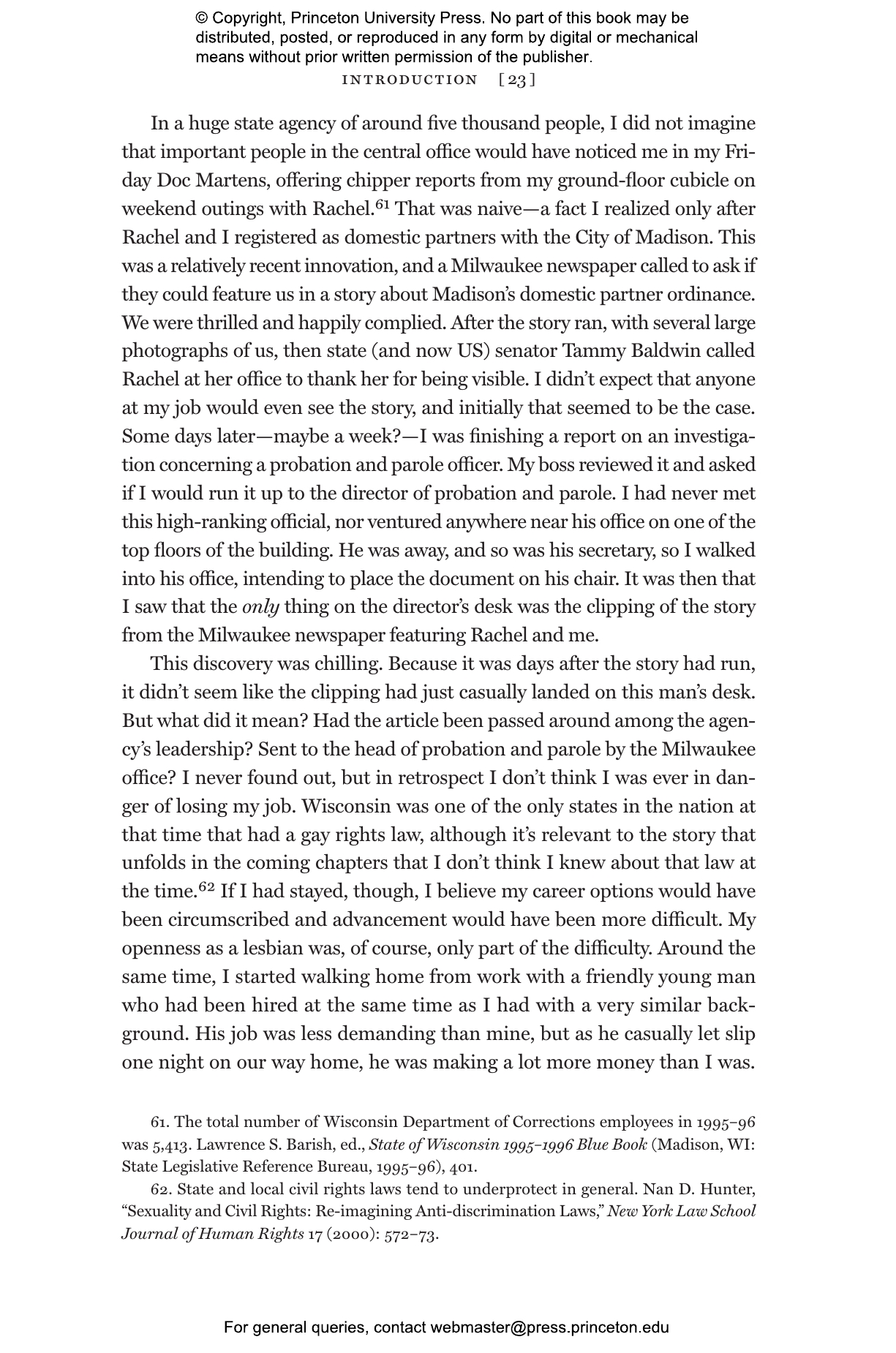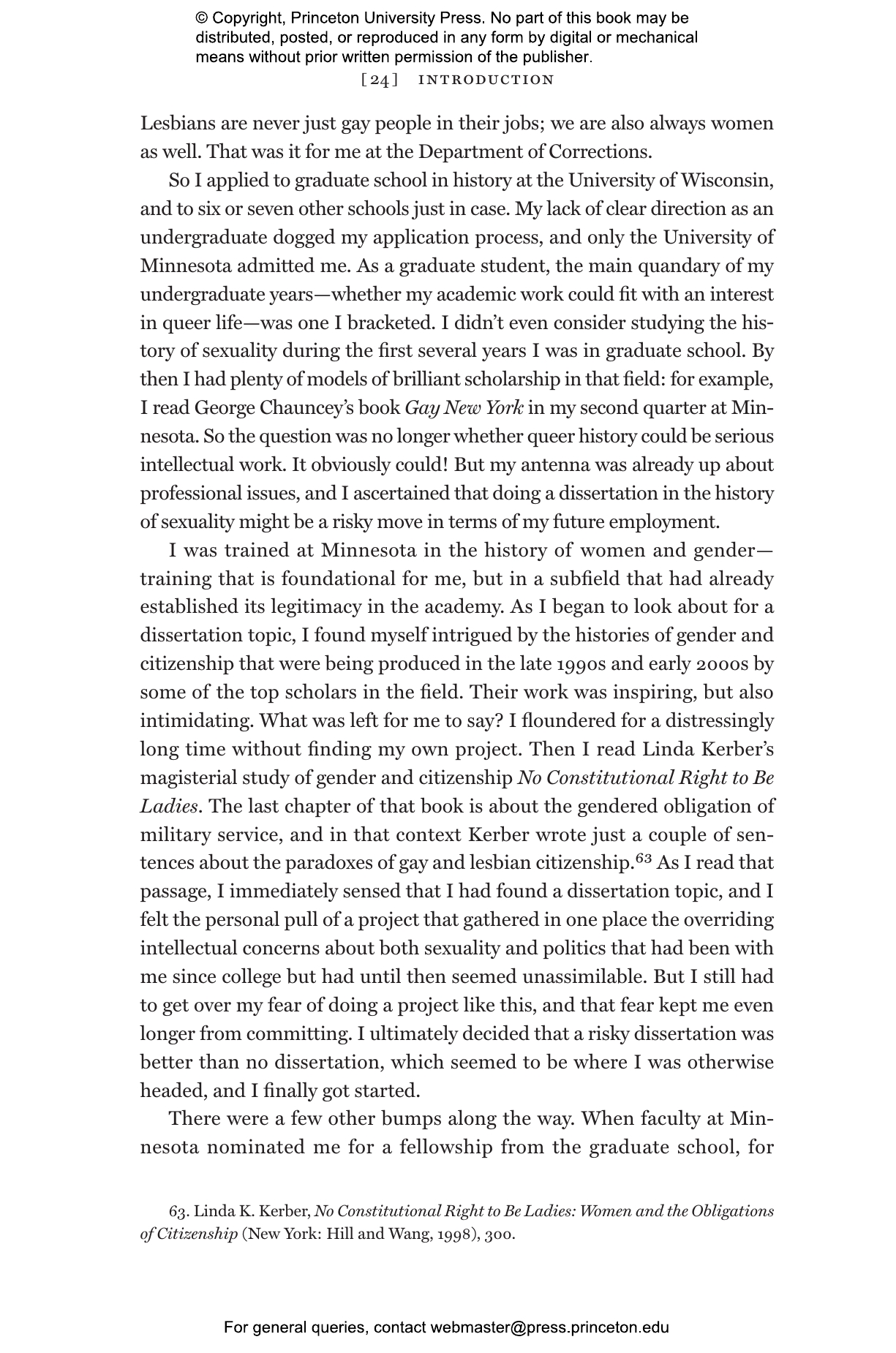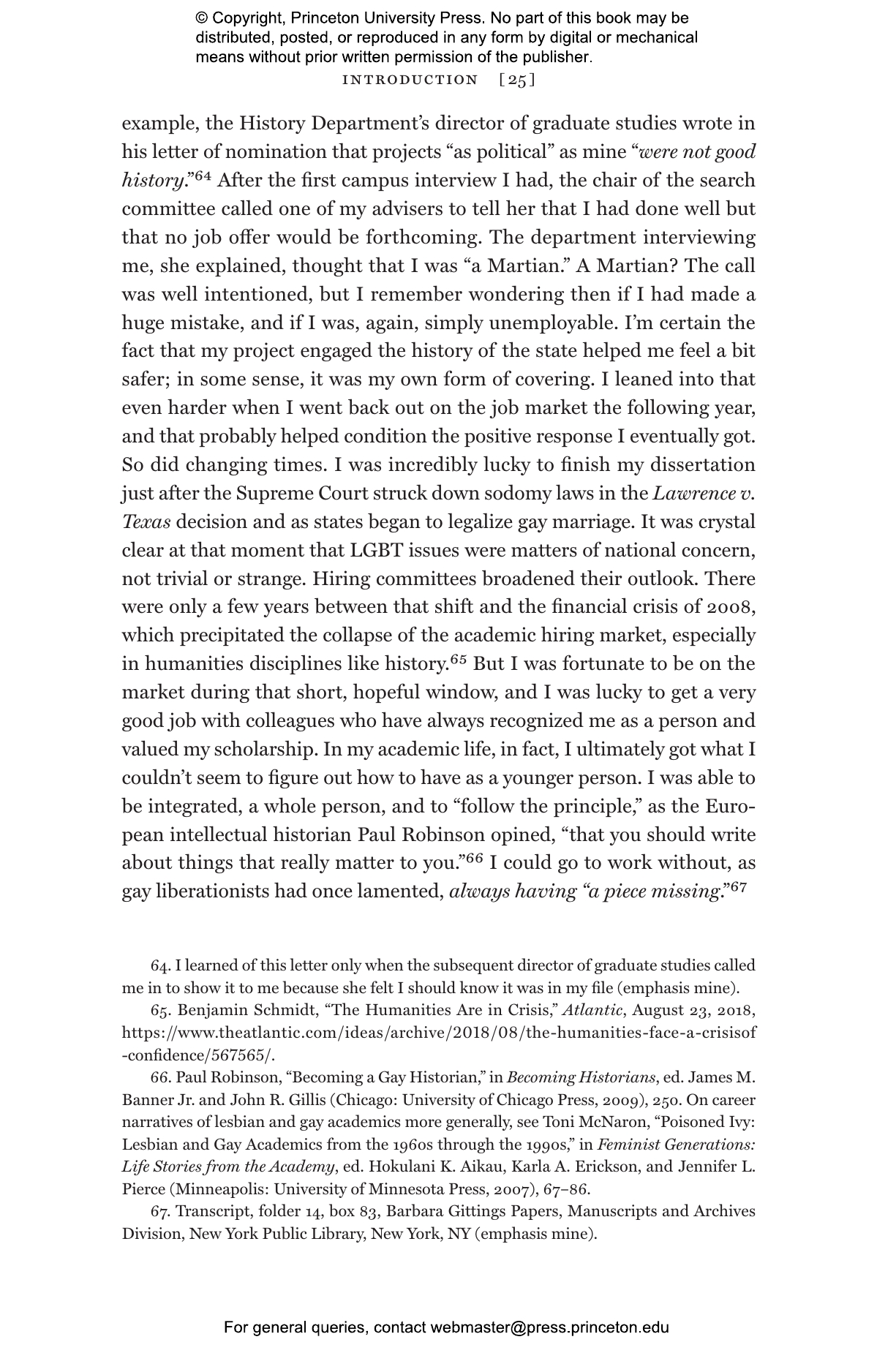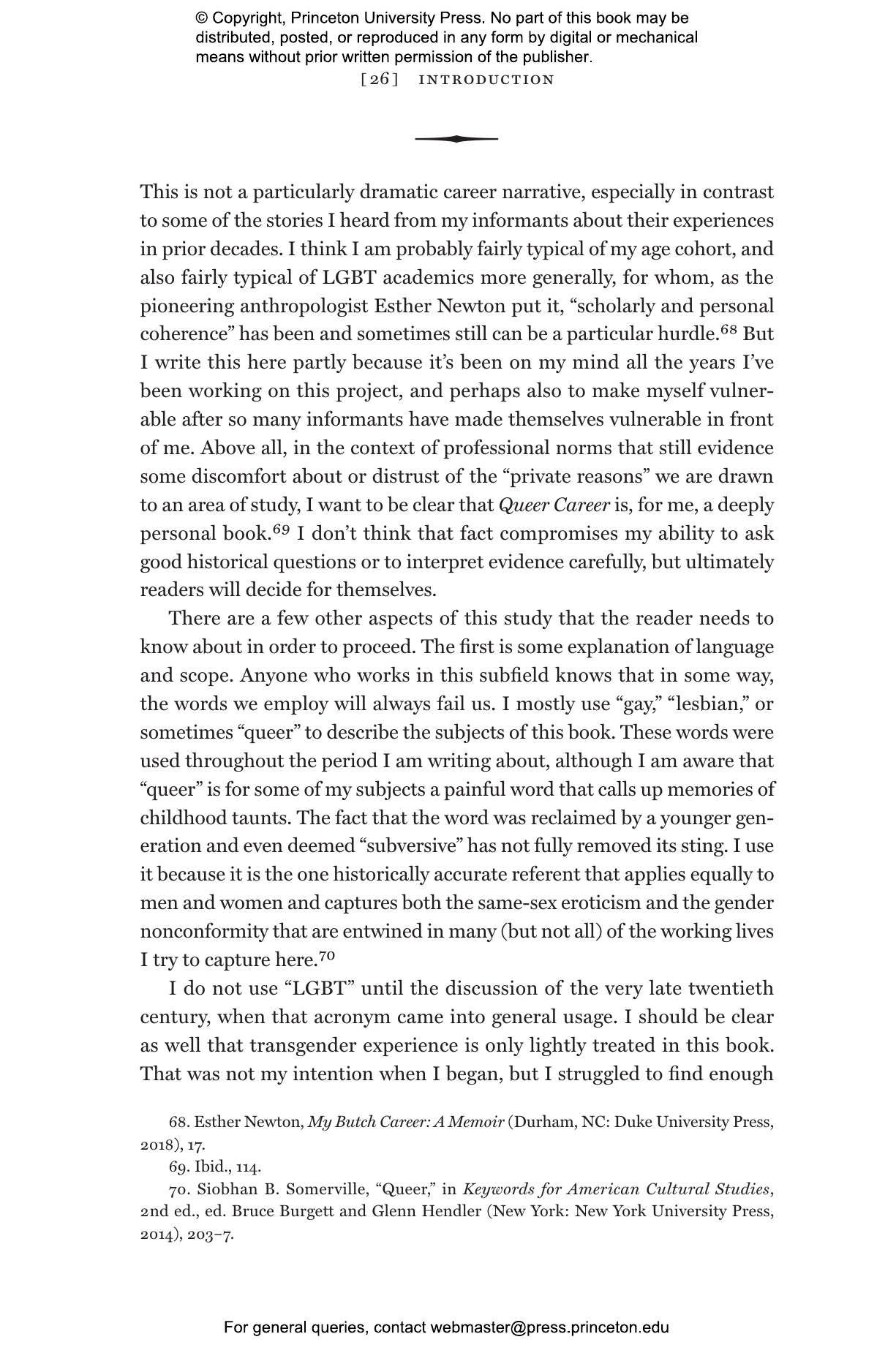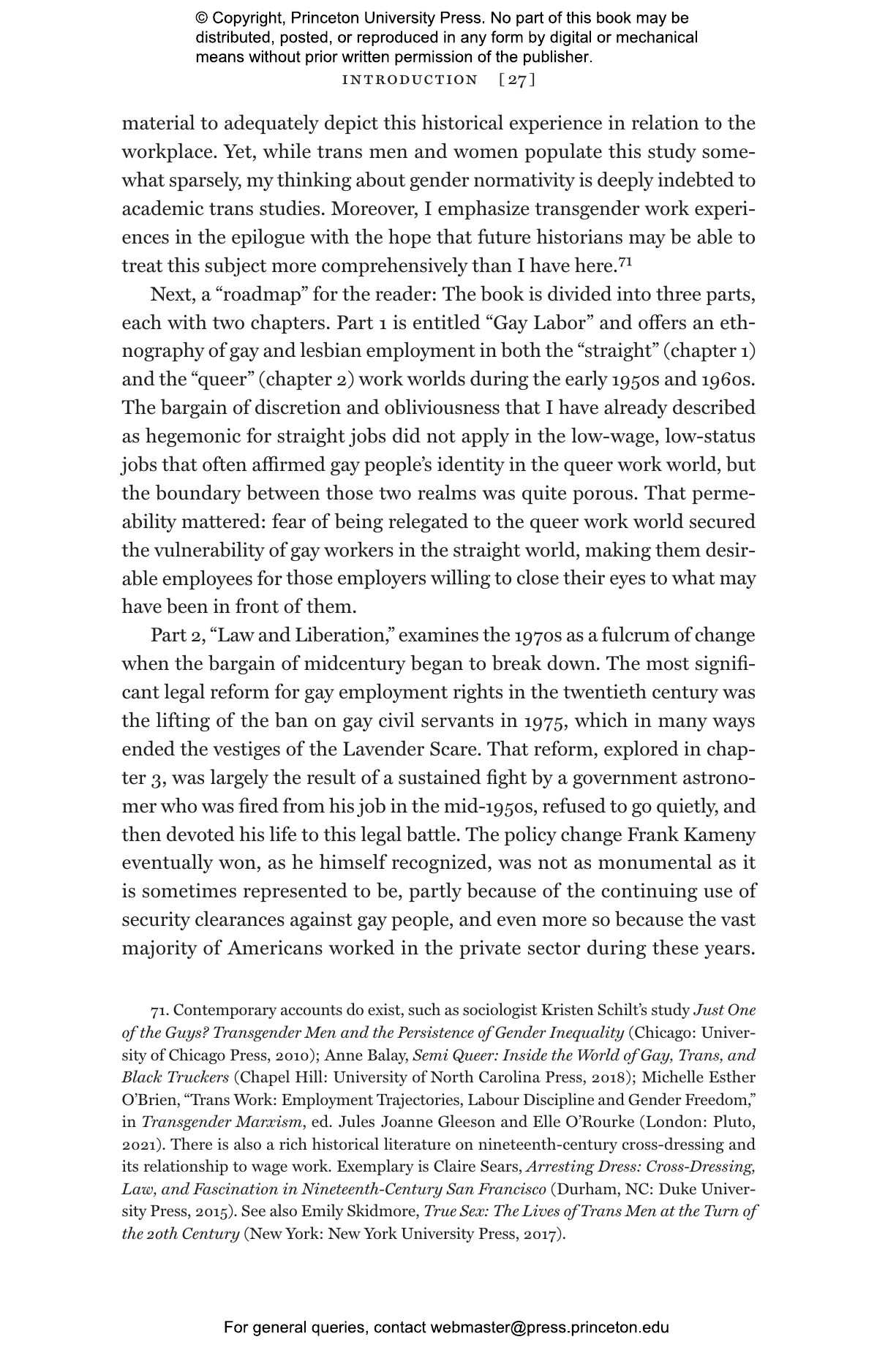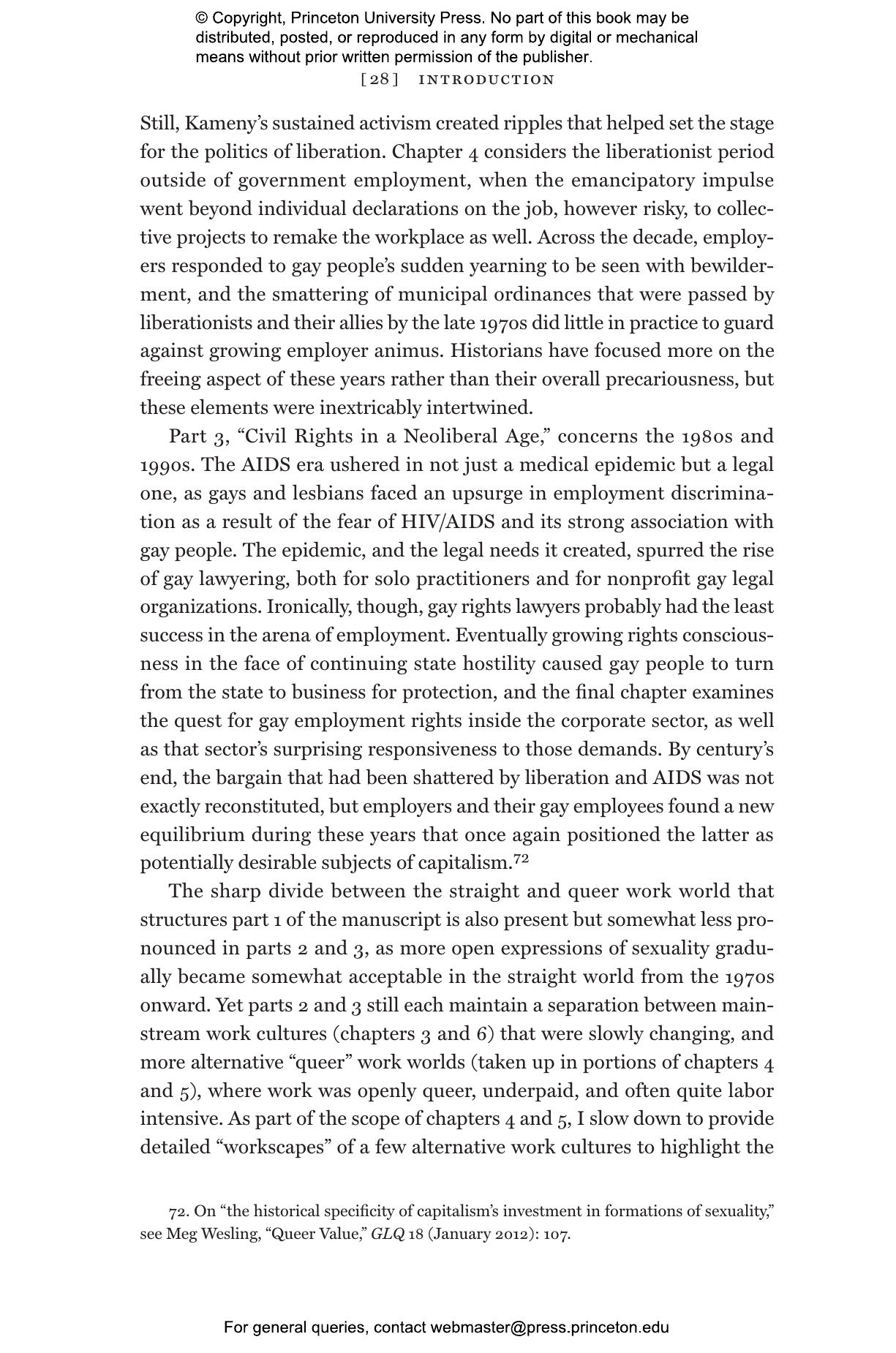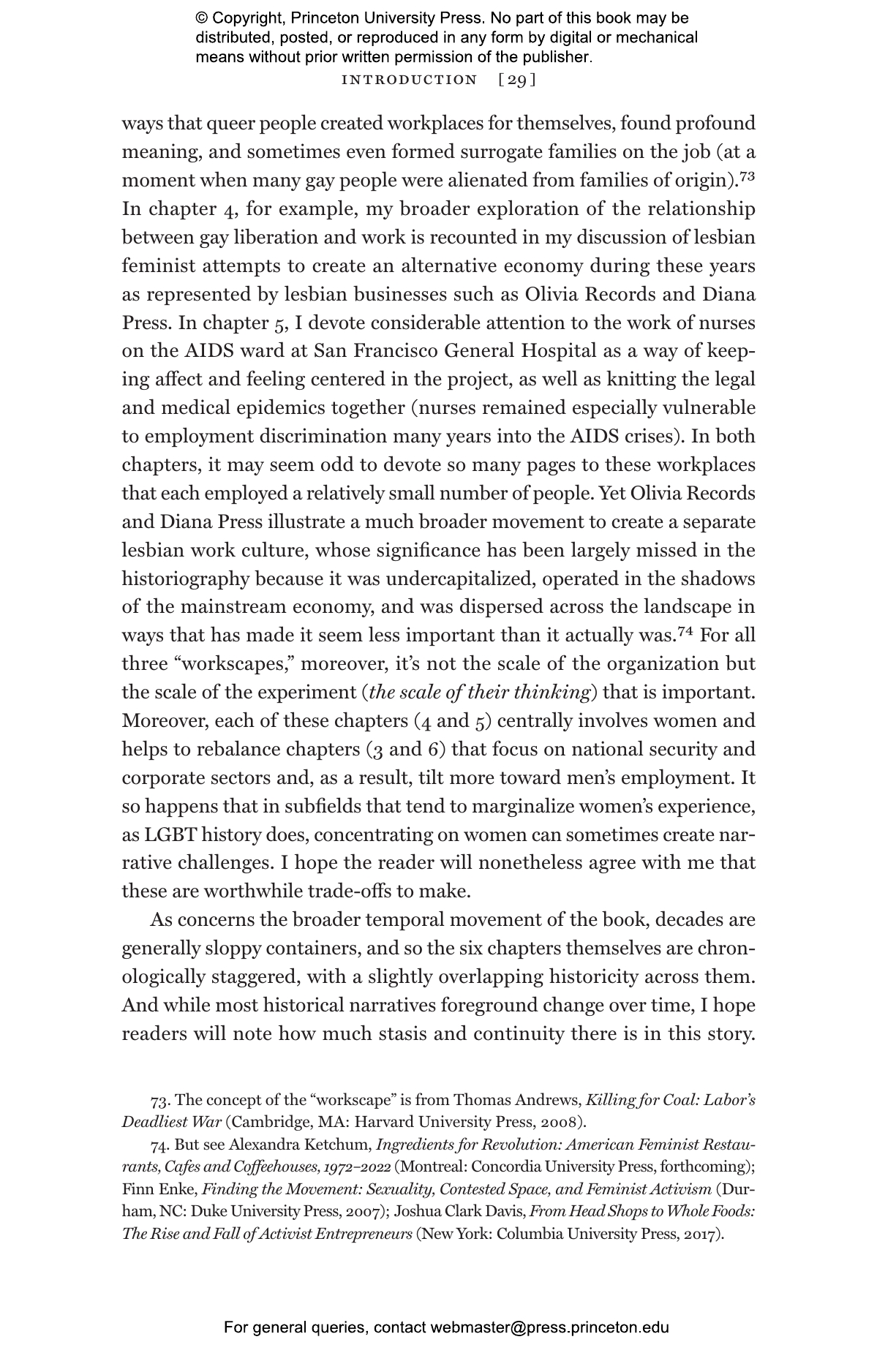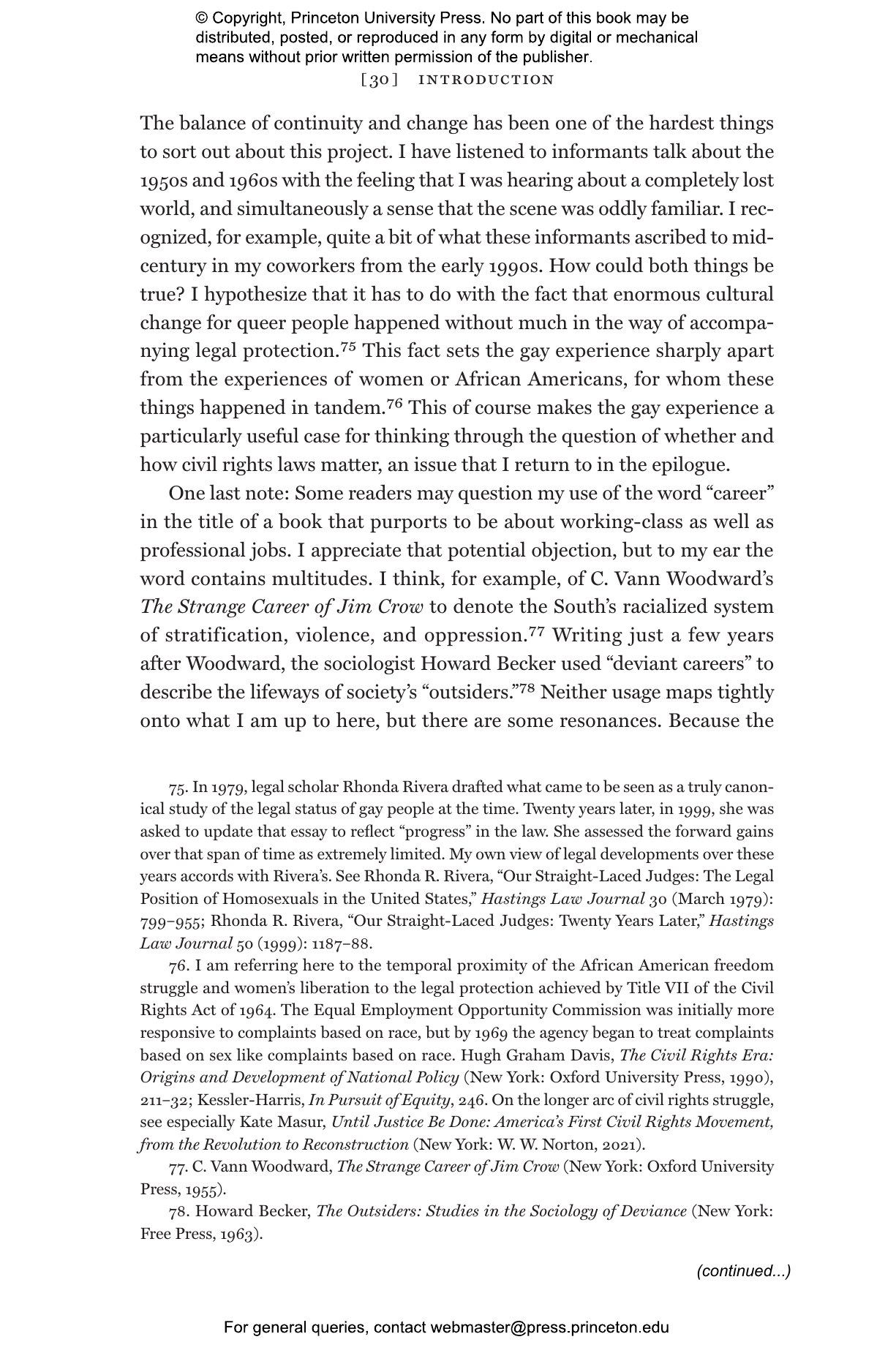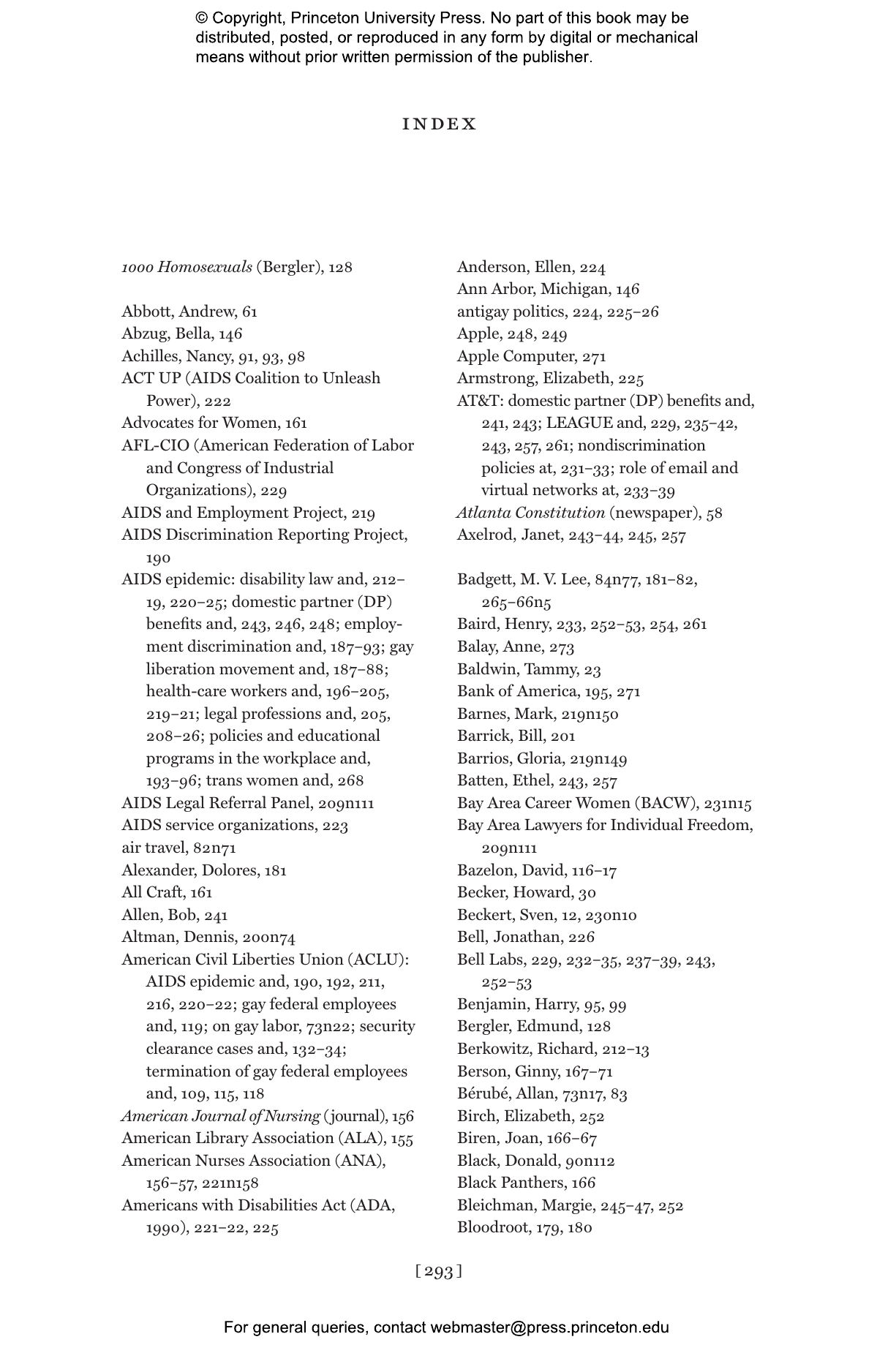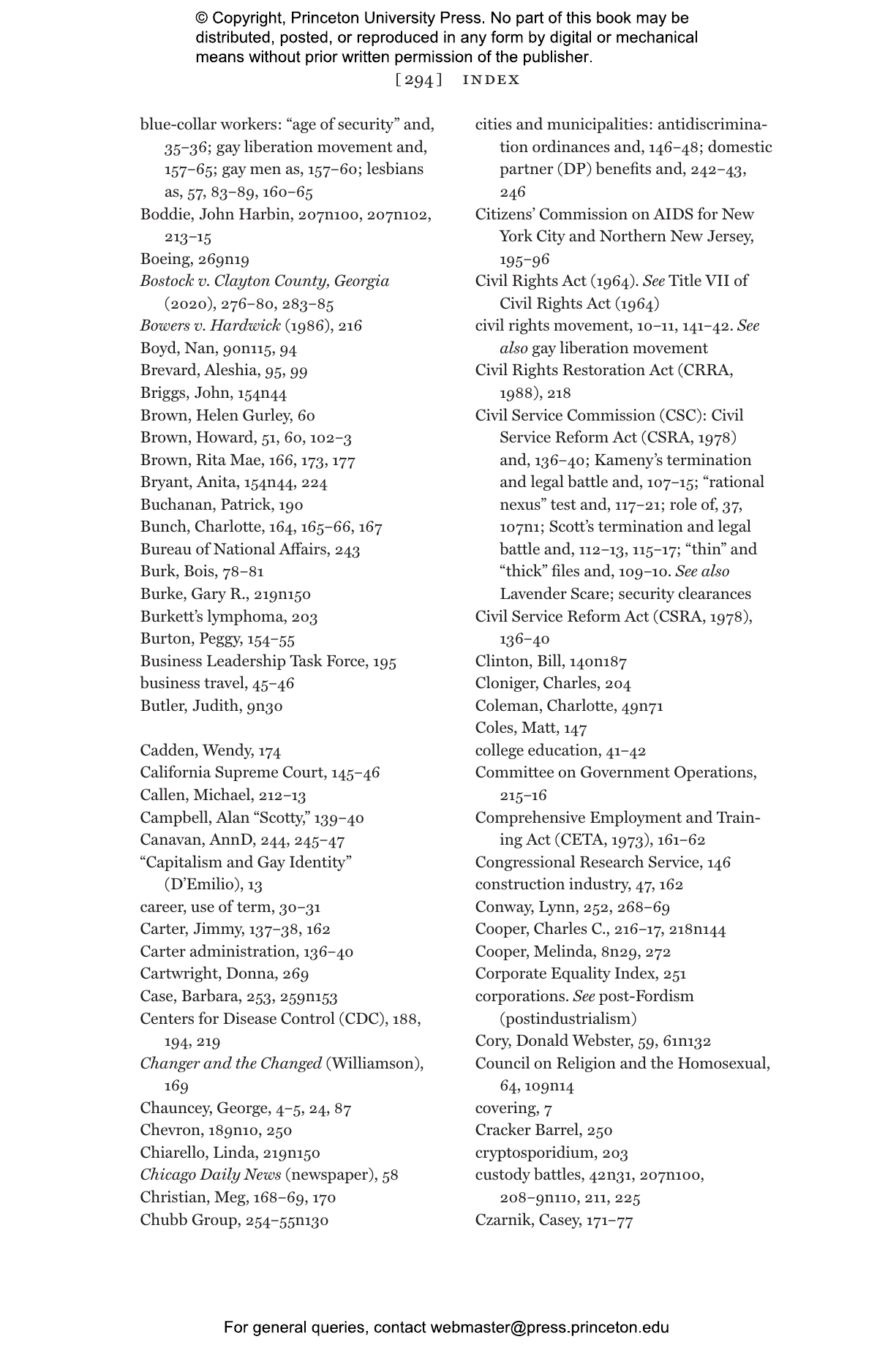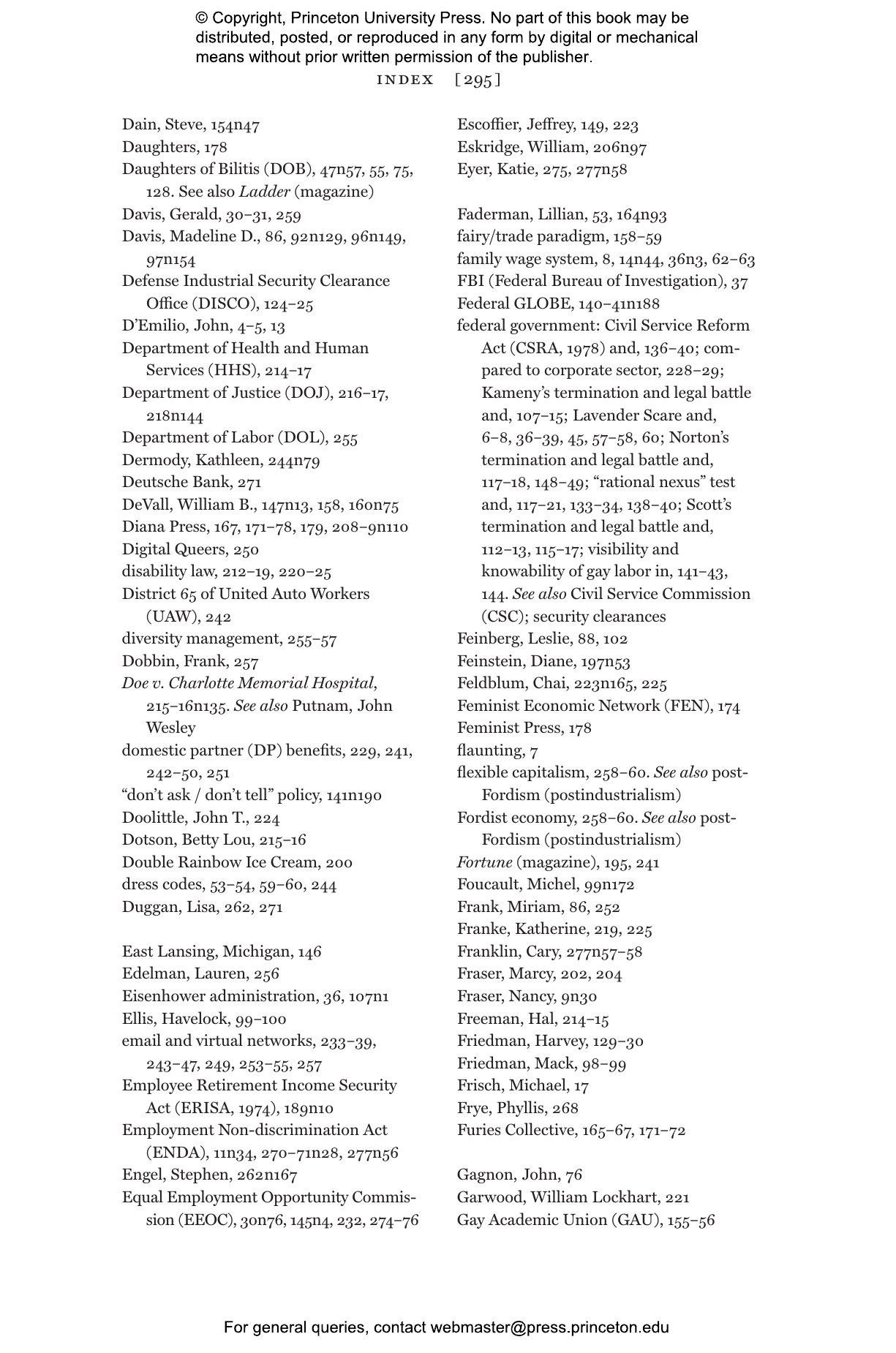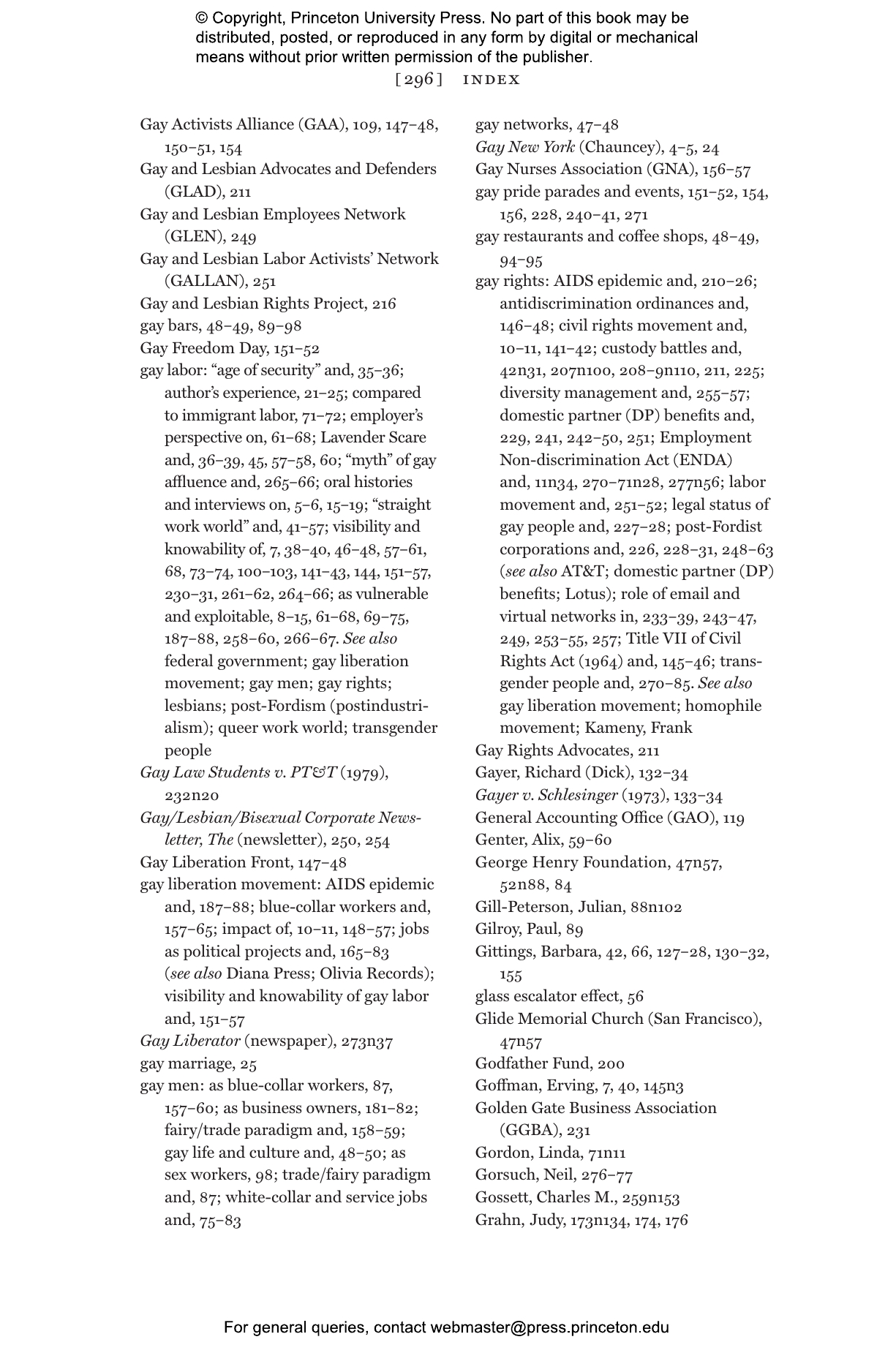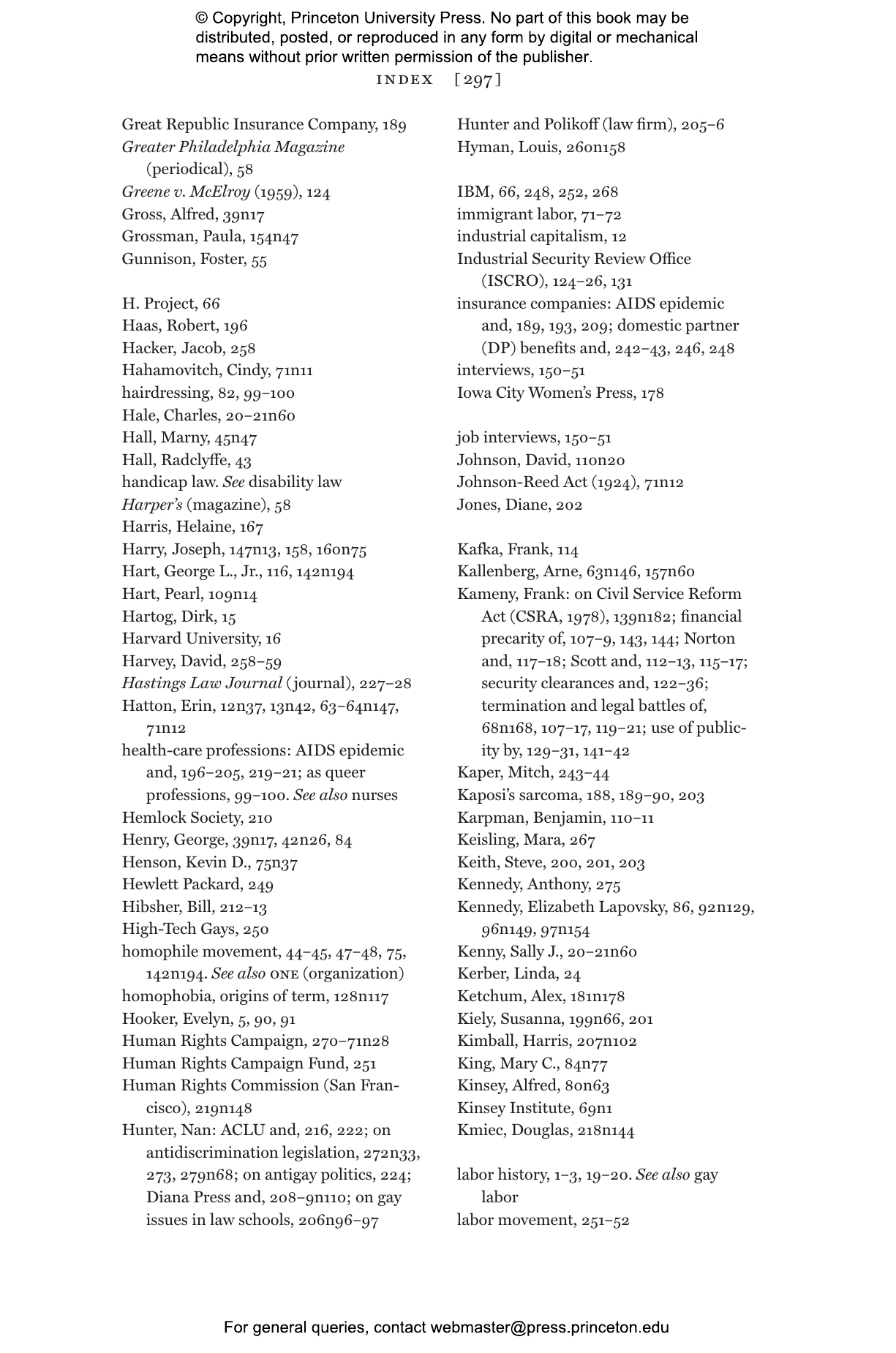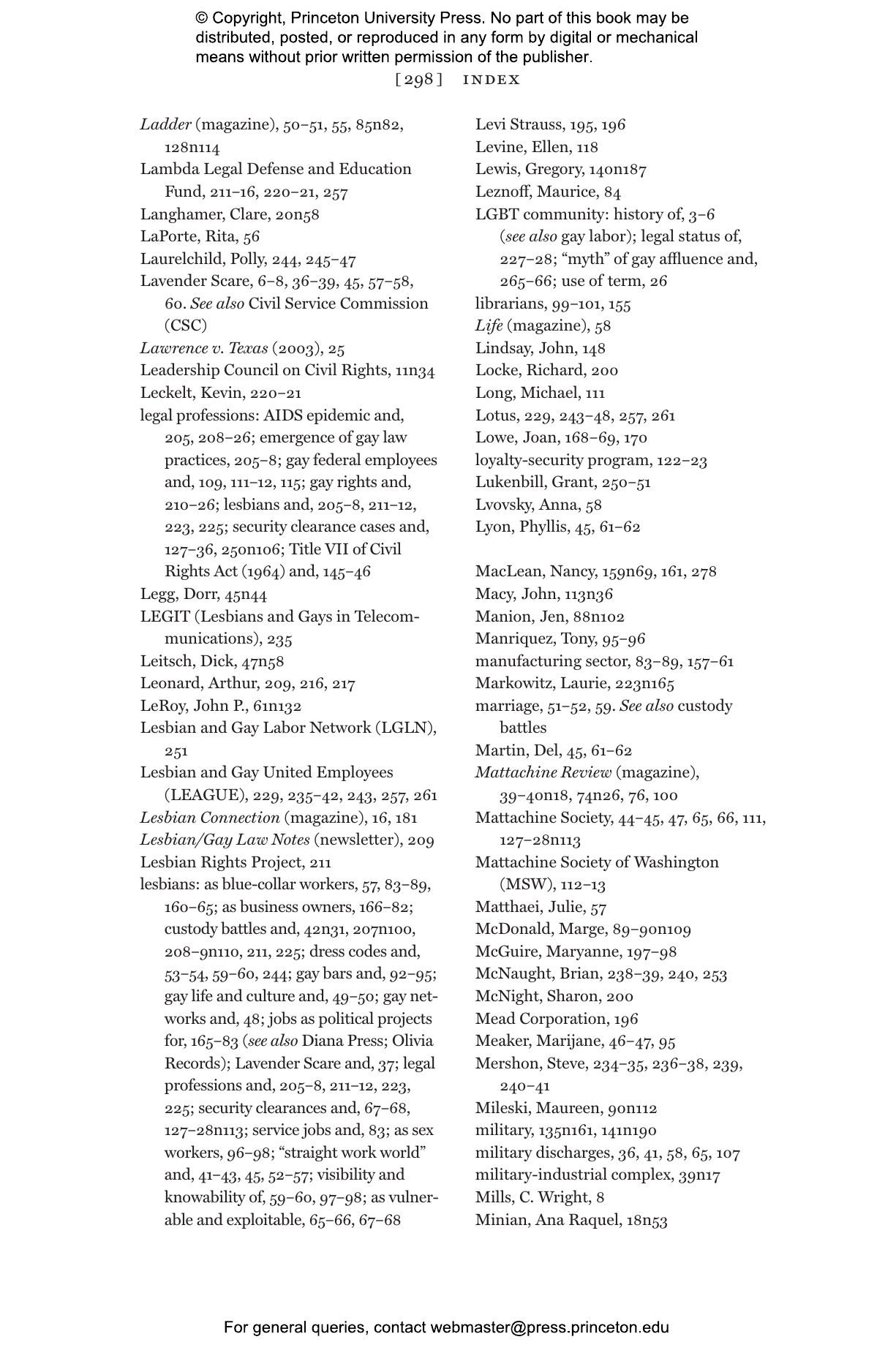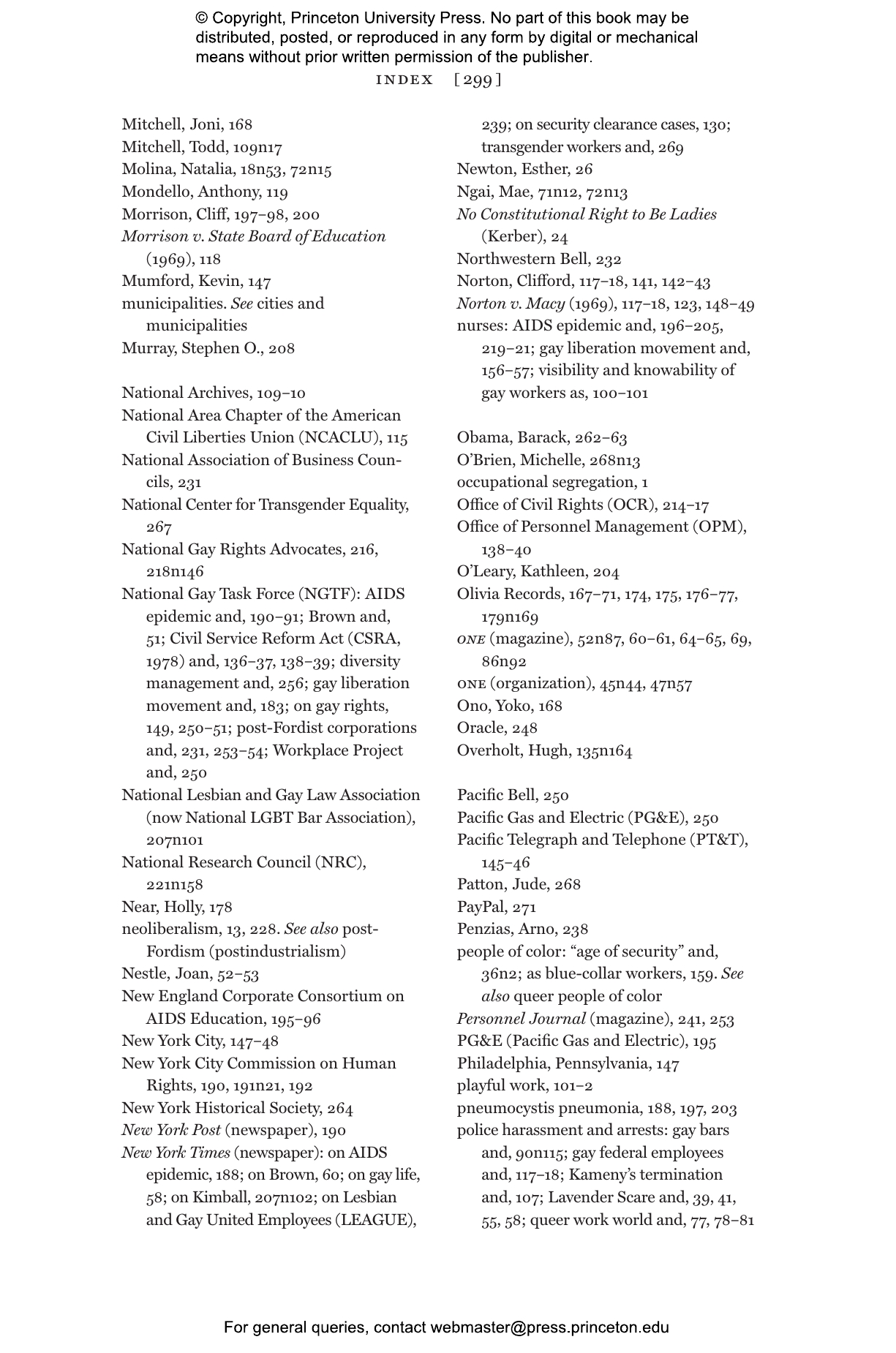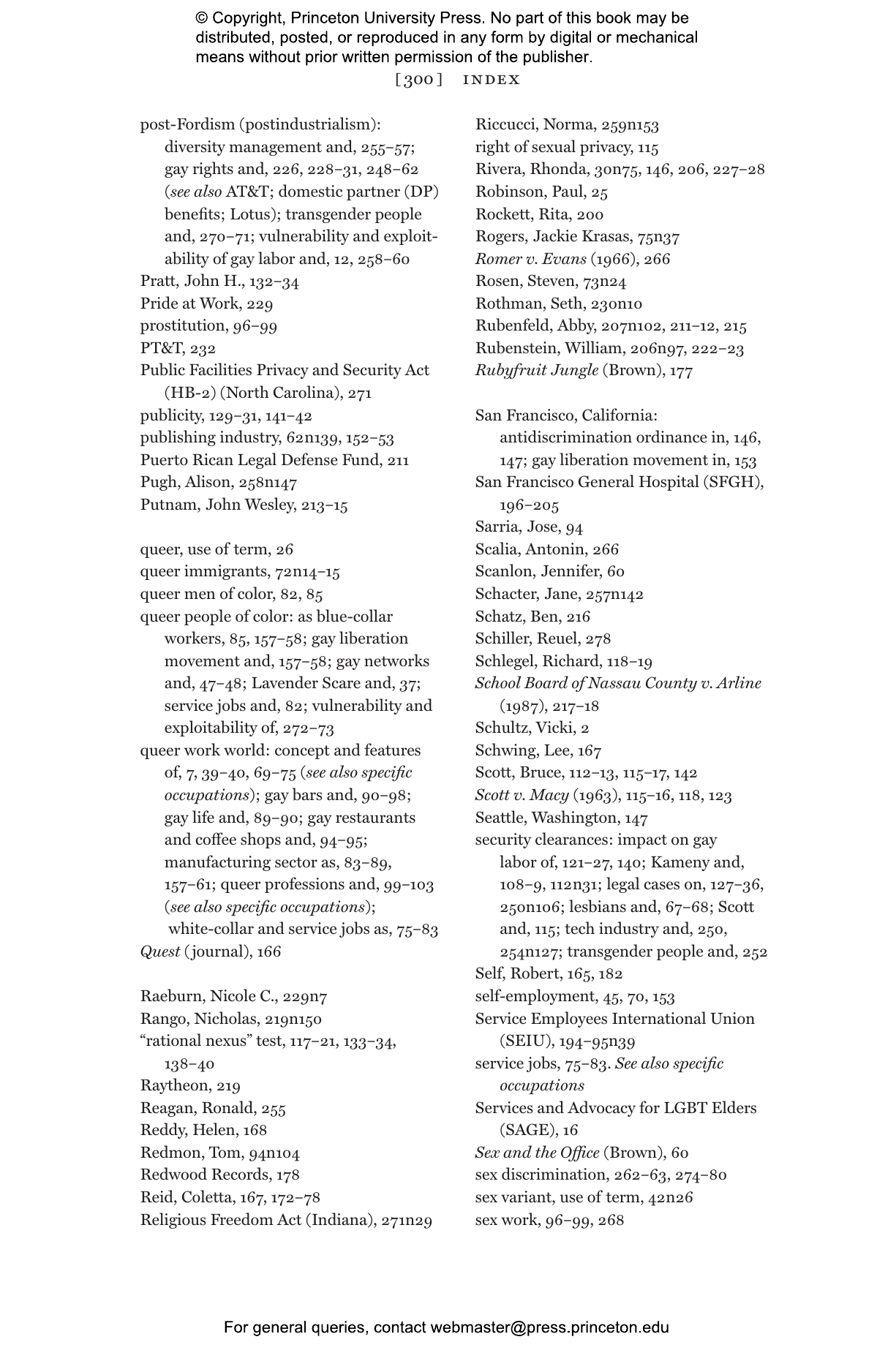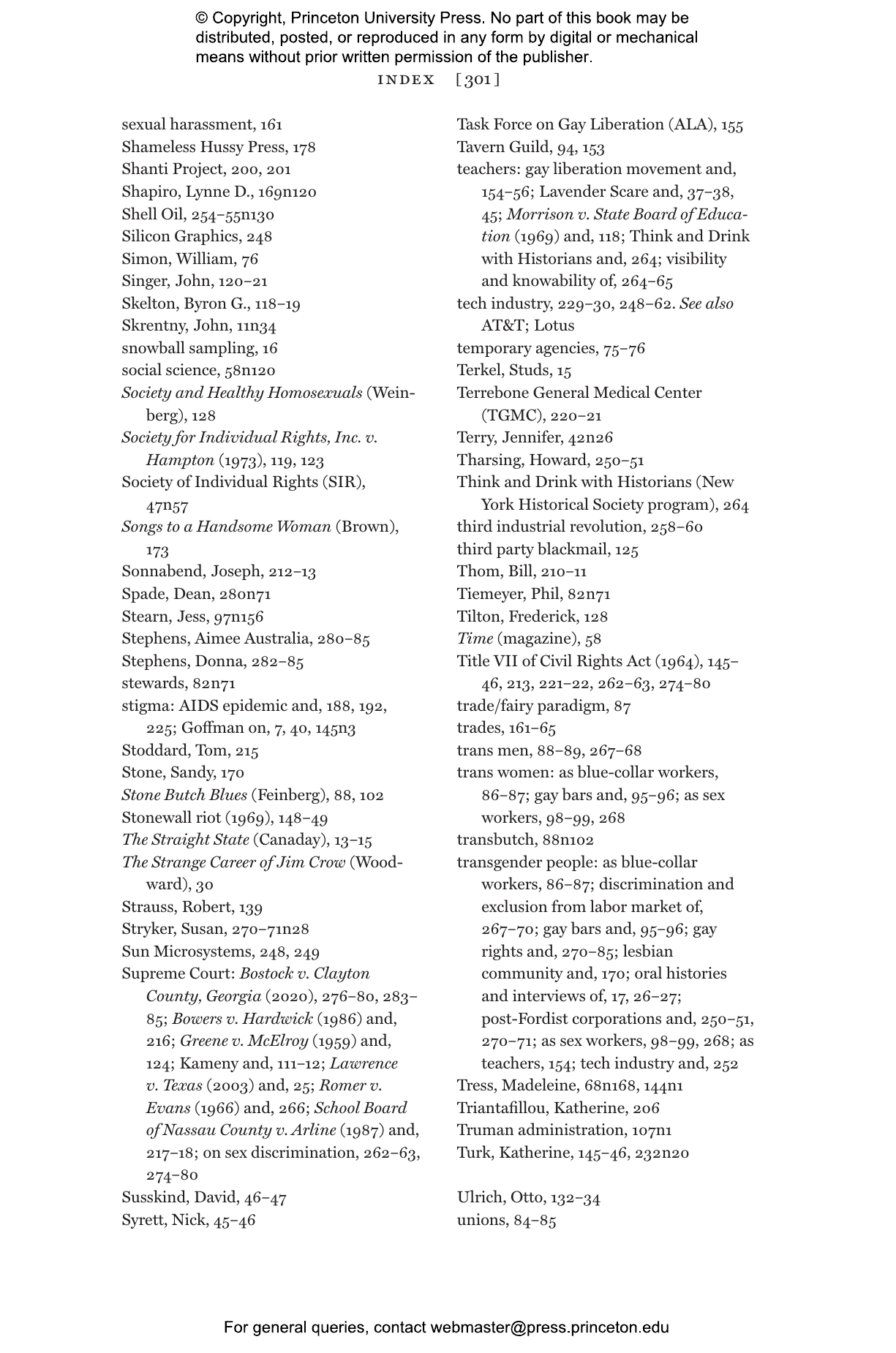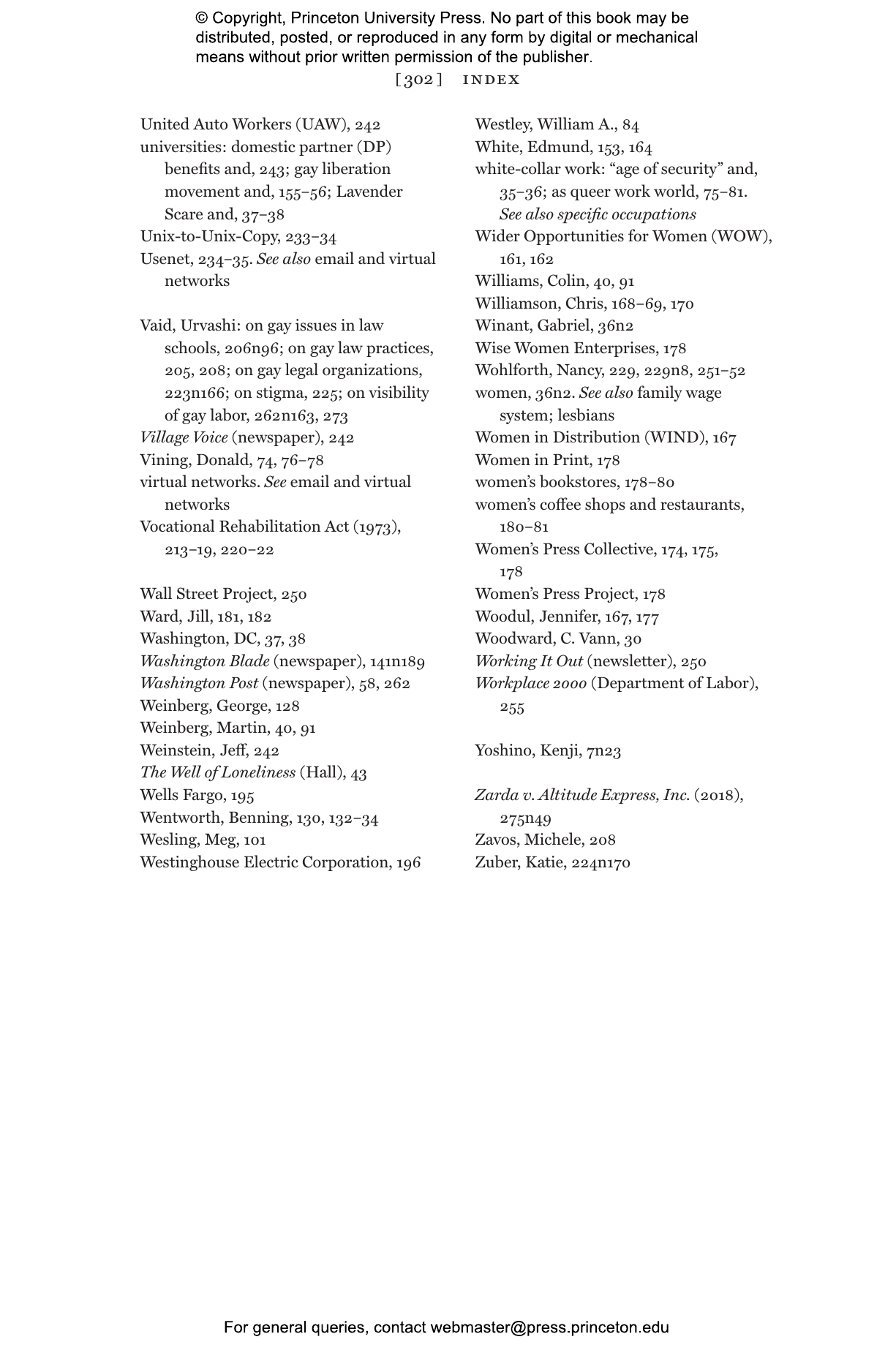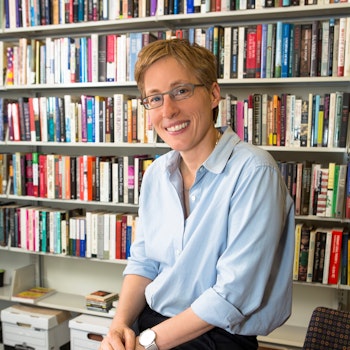Workplaces have traditionally been viewed as “straight spaces” in which queer people passed. As a result, historians have directed limited attention to the experiences of queer people on the job. Queer Career rectifies this, offering an expansive historical look at sexual minorities in the modern American workforce. Arguing that queer workers were more visible than hidden and, against the backdrop of state aggression, vulnerable to employer exploitation, Margot Canaday positions employment and fear of job loss as central to gay life in postwar America.
Rather than finding that many midcentury employers tried to root out gay employees, Canaday sees an early version of “don’t ask / don’t tell”: in all kinds of work, as long as queer workers were discreet, they were valued for the lower wages they could be paid, their contingency, their perceived lack of familial ties, and the ease with which they could be pulled in and pushed out of the labor market. Across the socioeconomic spectrum, they were harbingers of post-Fordist employment regimes we now associate with precarity. While progress was not linear, by century’s end some gay workers rejected their former discretion, and some employers eventually offered them protection unattained through law. Pushed by activists at the corporate grass roots, business emerged at the forefront of employment rights for sexual minorities. It did so, at least in part, in response to the way that queer workers aligned with, and even prefigured, the labor system of late capitalism.
Queer Career shows how LGBT history helps us understand the recent history of capitalism and labor and rewrites our understanding of the queer past.
Awards and Recognition
- Winner of the Hagley Prize in Business History, Business History Association
- Co-Winner of the Philip Taft Prize in Labor History, Labor and Working-Class History Association
- A Chronicle of Higher Education Best Scholarly Book of the Year
- Finalist for the PROSE Award in North American and US History, Association of American Publishers
- Shortlisted for the LGBTQ+ Studies Lammy Award, Lambda Literary
"This is the rare academic book that brought tears to my eyes thanks to its poignancy, rather than out of boredom. It serves as a model of how the history of neoliberalism could and should be written: with concerted attention to categories of race, gender, sexuality, class, and their interaction, rendered with sensitivity and attentive to the subjectivity and dignity of the historical actors it portrays."—Lily Geismer, Chronicle of Higher Education
"Queer Career sets out to reveal an experience of exploitation and a history of rights struggles—ambiguous as all such struggles are. What it shows beyond this is the possibility, in these origins, of a new language of labor."—Gabriel Winant, Modern American History
"Stunning. . . . The analytic pay-off of Canaday’s narrative is enormous. Her discovery of the postwar bargain and its decline should transform the narrative of postwar liberalism. . . . As powerful as Canaday’s arguments are, the triumph of this book is in the individual stories it tells. Queer Career is, first and foremost, a book about the lives of working people."—Reuel Schiller, Jotwell
"A fascinating and thought-provoking look into the relationship between sexual orientation and employment."—Library Journal
"A significant contribution to studies of work. [Queer Career] interrogates how work has shaped the lives of queer workers and demonstrates how work can be simultaneously empowering and exploitative."—Patti Giuffre, American Journal of Sociology
“With deep insight and expansive vision, Margot Canaday charts a history of queer vulnerability in the workforce and reveals the big-picture significance of queer labor for post-Fordist capitalism. This book is full of powerful ideas, and the voices of Canaday’s oral history narrators give it great heart.”—Regina Kunzel, author of Criminal Intimacy: Prison and the Uneven History of Modern American Sexuality
“Margot Canaday brings sexuality into the history of capitalism with dazzling results. Deeply researched and deftly narrated, Queer Career abounds with startling discoveries, vivid stories, and singular insights—not least into how the enduring vulnerability of lesbians and gay men prefigured the precarity now affecting most workers, whatever their sexual orientation. A masterful work of scholarship and a richly rewarding read.”—Nancy MacLean, author of Democracy in Chains: The Deep History of the Radical Right’s Stealth Plan for America
“This beautifully written, deeply sophisticated, and pathbreaking book unearths an entirely new body of evidence that captures the workplace experiences of a generation of gay and lesbian Americans whose stories have never been told while making crucial interventions in sociolegal history, the history of gender and sexuality, and the history of capitalism. A tremendous contribution and true tour de force.”—Serena Mayeri, author of Reasoning from Race: Feminism, Law, and the Civil Rights Revolution
“In this beautifully written book, Margot Canaday turns her powerful analytical lens on sexuality and the workplace. Queer Career makes the insightful claim that the world of gay labor in the 1950s and 1960s anticipated the post-Fordist economy we all live in today. This brilliant and timely ethnographic history reminds us that the intimate and the economic are intricately bound together.”—Robert O. Self, author of All in the Family: The Realignment of American Democracy since the 1960s
